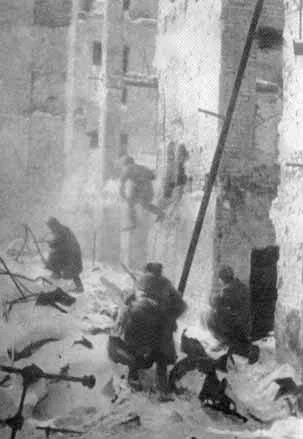I've written a very short whitepaper on a subject I care a lot about: communication.Click HERE to subscribe to my newsletter and I'll send it to you for free:The Simple Technique Anyone Can Immediately Use To Become a Better Communicator.(If you are already a subscriber, drop me a line and I'll send you the whitepaper.)
Review: The Good Shepherd/Greyhound
In July, I read an article about the Tom Hanks movie Greyhound that mentioned that the movie is based on a 1955 novel by C.S. Forester called The Good Shepherd. In high school, I used to read C.S. Forester’s Hornblower novels about the British navy during the Napoleonic wars, and when I saw the Kindle version of The Good Shepherd on sale for $0.99 [currently $2.99], I decided to give it a chance. I ended up reading the whole thing in less than 48 hours—the perfect summer reading novel. Below are my brief thoughts on both the novel and the movie.
Book Review: The Good Shepherd
From the publisher’s description:
The mission of Commander George Krause of the United States Navy is to protect a convoy of thirty-seven merchant ships making their way across the icy North Atlantic from America to England. There, they will deliver desperately needed supplies, but only if they can make it through the wolfpack of German submarines that awaits and outnumbers them in the perilous seas. For forty eight hours, Krause will play a desperate cat and mouse game against the submarines, combating exhaustion, hunger, and thirst to protect fifty million dollars' worth of cargo and the lives of three thousand men. Acclaimed as one of the best novels of the year upon publication in 1955, The Good Shepherd is a riveting classic of WWII and naval warfare from one of the 20th century's masters of sea stories.
The novel is essentially a long interior monologue of the thoughts of Captain Krause—the author gets you to feel what it must have been like to command a warship in the frozen North Atlantic: the crushing responsibility, the loneliness of command, the physical exertions of fighting a (largely) unseen enemy.
Captain Krause was raised as the only child of a strictly devout but loving pastor father and a mother who died when he was very young, and The Good Shepherd is one of those few popular books that accurately captures what it’s like to truly believe that the Lord is your shepherd and constantly at your right hand. The captain’s interior monologue is peppered with (unspecified) scriptural quotations, and his piety is presented as straightforward and honest.
I thought the ending was too abrupt and unsatisfying, but otherwise I really enjoyed the book.
The Good Shepherd. Recommended. ★★★1/2
Note on my Rating System for Books
I use a 5 star system in my ratings to signify the following:
★★★★★ life-changing and unforgettable
★★★★ excellent
★★★ worth reading
★★ read other things first
★ not recommended
Movie Review: Greyhound
If I hadn’t read the book first, I would have liked the movie Greyhound more. Even though the title was changed away from its double-meaning and scriptural allusion, the movie actually preserves the novel’s positive portrayal of the captain’s faith—something very unusual in modern movies, as I don’t need to tell you.
Tom Hanks is characteristically great, and the action scenes are believable, but the movie isn’t able to give us his interior thoughts in the same way as the book, nor get us to feel the psychological terror of being hunted by a Nazi wolfpack, a thousand miles from land and a thousand miles above the frozen Atlantic seafloor.
Be that as it may, I still recommend the movie, particularly if it causes you to turn off cable news!
Movie: Greyhound. Recommended.
Red Orm and the Long Ships
The Long Ships, by Frans Gunnar Bengtsson
This may be the most enjoyable and compellingly readable book that I’ve ever read. It’s not the best book I’ve ever read, but it’s certainly close to the most fun. Michael Chabon wrote the introduction to the New York Review Books Classics edition, and I like how he begins his essay:
“In my career as a reader I have encountered only three people who knew The Long Ships, and all of them, like me, loved it immoderately. Four for four: from this tiny but irrefutable sample I dare to extrapolate that this novel, first published in Sweden during the Second World War, stands ready, given the chance, to bring lasting pleasure to every single human being on the face of the earth.”
It’s now five for five, because I love this book immoderately, too. I first read it about 10 years ago, and read it again this summer; the second reading might have been even more enjoyable than the first one. Particularly for men who struggle to read fiction, this is the first book I’d prescribe. Among other qualities, the novel is remarkably funny in a dry, understated way.
The Long Ships tells the story of a Viking named Red Orm and his adventures in the years AD 980-1010. He travels widely over Europe and lives at a time when Christianity and the pagan religions are in conflict in Scandinavia. Orm is a hypochondriac, brave as a lion, widely-traveled, and, most of all, remarkably lucky.
As is anyone who get to read his story.
(I dare you not to make it six for six.)
Highly recommended.
★★★★
The Long Ships, by Frans Gunnar Bengtsson
Note on My Rating System
I use a 5 star system in my ratings to signify the following:
★★★★★ life-changing and unforgettable
★★★★ excellent
★★★ worth reading
★★ read other things first
★ not recommended
Once An Eagle
Seventy-five years ago today terrified young men jumped off bucking landing crafts into the roiling surf that broke on the ancient beaches of Normandy. Of the first to be shoved ashore, those that weren't immediately killed were drowned, and those that were neither killed nor drowned struggled ashore only to be killed in the wet sand, that soon became wet and with blood and not only water. A small number survived, and as the day went on their number increased. Seventy-five years later we look back on D-Day as a great victory. It was. But it was also war, and war is as it has always been: ugly, violent, wasteful, and in the midst of all that, an also an occasion for luminous heroism.
Today's anniversary has caused me to think of a great American book about war: Once An Eagle, by Anton Myrer.
Every war memoir I've ever read, and every combat veteran I've ever spoken to, always tells the same story about the men who make up an army:
- Some are staff officers who never come near the actual fighting and dying, and some of these have somehow attained senior rank despite never serving in actual combat;
- Some are staff officers who drop into combat roles to feather their records so as to attain future rank, and these are dangerous men, because they care only about promotion and will risk other men's lives for their own glory;
- Some are wicked men--both officers and enlisted--who enjoy violence and killing;
- Most are the ordinary enlisted men, terrified at the prospect of a violent death and also capable of extraordinary bravery and sacrifice on behalf of their friends;
- And some few are the good ones, the officers who do everything to serve the men under their commands, who often die, who are often passed over for promotion, and who will never be forgotten by the men they led.
This distribution shouldn't surprise us, because it's just the same as ordinary life. The difference is that in war, life and death is more immediate than it is for us in ordinary life.
Knowing the above and knowing that war is an inevitable part of human life, what is to be done?
Once An Eagle is unique among war books that I know of in that it's a novel about a sense of calling. The novel's hero is a Nebraskan named Sam Damon. Sam learns that war is mainly fought by ordinary, terrified men, who are often poorly led and made to die needless deaths, and so Sam feels a responsibility--a sense of calling--to offer himself to do what he can to serve the ordinary men who fight our wars.
The novel covers Sam's military career, beginning with World War I, then through the long wilderness years between the wars in lonely forts across the American West, the Philippines, and even mainland China. Then war comes again (as Sam always knew it would) with Pearl Harbor, and the fighting resumes.
Sam devotes himself to leading and serving the ordinary, terrified men under his command; there is almost something religious in the sacrifices he makes on their behalf. Once An Eagle is filled with scenes of brutality and waste and greed and stupidity, and also courage and sacrifice and the sort of quiet heroism that ordinary men perform when they must.
I said last year in a Father's Day post that I think every American man should read this book, and I stand by that statement today, as we remember the unimaginable terror and violence and heroism of D-Day, seventy-five years later.
Highly recommended.
★★★★★
Once An Eagle: A Novel, by Anton Myrer
Note on My Rating System
I use a 5 star system in my ratings to signify the following:
★★★★★ life-changing and unforgettable
★★★★ excellent
★★★ worth reading
★★ read other things first
★ not recommended
*****How to Subscribe to Updates from My Blog*****
If you sign up for my Andrew Forrest newsletter, I’ll send you a white paper I’ve written called “The Simple Technique Anyone Can Immediately Use to Become a Better Communicator”.
I’m also blogging through the Gospels each weekday in 2019,and I have a separate mailing list for folks who only want to receive the Gospel posts. Subscribe here to receive a weekday update on that day’s Gospel reading.
Father Elijah Follow-up
I know that some folks have been reading the apocalyptic novel Father Elijah, after I wrote recommending it last week. Three quick things as follow-up:
- Once you finish it, you should read the FAQs about Father Elijah that author Michael D. O'Brien has on his website. I think you'll find some of his answers helpful.
- Please shoot me an email or reply to this post and let me know what you thought of the book. My wife finished the novel late last night, and so she is now one of only two people I know in the entire world who have read Father Elijah. What are your thoughts?
- When's the last time you read a good, long novel? I'd say the time is right to read this one.
*****How to Subscribe to Updates from My Blog*****
If you sign up for my Andrew Forrest newsletter, I’ll send you a white paper I’ve written called “The Simple Technique Anyone Can Immediately Use to Become a Better Communicator”.
I’m also blogging through the Gospels each weekday in 2019,and I have a separate mailing list for folks who only want to receive the Gospel posts. Subscribe here to receive a weekday update on that day’s Gospel reading.
Father Elijah
This 600 page apocalyptic novel has had a profound spiritual effect on me. Father Elijah: An Apocalypse is the story of Father Elijah Schafer—Polish Holocaust survivor, convert from Judaism, Carmelite Monk from a monastery in northern Israel—and is set in the near future. The author imagines what it would be like to be alive as the End Times approach. It’s worth quoting the author’s introduction at length:
“The reader will encounter here an apocalypse in the old literary sense, but one that was written in the light of Christian revelation. It is a speculation, a work of fiction. It does not attempt to predict certain details of the final Apocalypse so much as to ask how human personality would respond under conditions of intolerable tension, in a moral climate that grows steadily chillier, in a spiritual state of constantly shifting horizons. The near future holds for us many possible variations on the apocalyptic theme, some more dire than others. I have presented only one scenario. And yet, the central character is plunged into a dilemma that would face him in any apocalypse. He finds himself within the events that are unfolding, and thus he is faced with the problem of perception: how to see the hidden structure of his chaotic times, how to step outside it and to view it objectively while remaining within it as a participant, as an agent for the good….
[This book does not ] offer simplistic resolutions and false piety. It offers the Cross. It bears witness, I hope, to the ultimate victory of light.”from Father Elijah: An Apocalypse, by Michael D. O'Brien
Mr. O’Brien’s great skill is to make the unseen spiritual world accessible, and to make holiness attractive. After reading the novel, I find myself praying more and doing so more fervently.
I started Father Elijah in Israel a few weeks ago, and when I returned home, I found myself reading in bed, long after my family was asleep. As the novel approached its climax, I found myself unable to go to sleep, heart beating out of my chest.
And the last page of the novel? I was astounded when I read it.
Highly recommended.
★★★★★
Father Elijah: An Apocalypse, by Michael D. O'Brien
Note on My Rating System
I use a 5 star system in my ratings to signify the following:
★★★★★ life-changing and unforgettable
★★★★ excellent
★★★ worth reading
★★ read other things first
★ not recommended
*****How to Subscribe to Updates from My Blog*****
If you sign up for my Andrew Forrest newsletter, I’ll send you a white paper I’ve written called “The Simple Technique Anyone Can Immediately Use to Become a Better Communicator”.
I’m also blogging through the Gospels each weekday in 2019,and I have a separate mailing list for folks who only want to receive the Gospel posts. Subscribe here to receive a weekday update on that day’s Gospel reading.
My 2016 Reading List
I'm almost 2 years late with this post, but better late than never, right? What follows is my 2016 reading list--some great stuff here.
My 2016 Reading Goal
I set a goal to read 50 books in 2016. But, just as in 2013, 2014, and 2015, I fell short: I read 32 books in 2016.
My Rules
I only count books I read all the way through, cover to cover. I read lots of journals and periodicals and online resources, and in my weekly sermon prep read parts of different books and commentaries, but for my reading goal, none of those count. Why not? I find that the concentration and focus required to read a book all the way through is different (and more valuable) than reading a magazine article or blog post or even part of a book, for example. (Also, reading blog posts and articles isn't life-giving to me the way reading a book is.)A book that I keep thinking about months afterward, a book that adds enduring value to my life, that's a book I'll define as good. Since I'm writing this post in 2018, books I rate well below are books that really stuck with me.I use a 5 star system in my ratings to signify the following:★★★★★ life-changing and unforgettable★★★★ excellent★★★ worth readingBooks getting less than 3 stars aren't on my Best list, which doesn't mean they were necessarily bad--just not books that I'd excitedly recommend to you.★★ read other things first★ not recommended
The Best Books I Read in 2016 (in chronological order)
The Rage Against God: How Atheism Led Me to Faith, by Peter Hitchens
Peter Hitchens has become one of my favorite writers, and I try to read everything he publishes. He writes a column for the "The Mail on Sunday" newspaper, and blogs regularly at that site. (His blog is particularly entertaining and informative.) Mr. Hitchens is the brother of the late Christopher Hitchens, a man well-known for his strident atheism. Peter Hitchens, in contrast, had an adult conversion to conservative Anglicanism, and this book is partly a memoir of that journey.Most of the work of Mr. Hitchens has an elegiac quality, a mournful look at the way the world used to be and will never be again. He is too honest and too intelligent to believe that everything about the world of his boyhood is better than the modern world, but also too honest and intelligent to go along with the unthinking modern worship of Progress.★★★★ The Rage Against God
All the Light We Cannot See, by Anthony Doerr
 What I remember most about this lovely novel about a blind French girl during the Second World War is the appreciation the author has for the thingness of things--old-fashioned keys, the oiled tumblers of a lock, the feel of braille on a page, worn carpet on rickety steps. Just as Marie-Laure comes to know the world through senses other than sight, so do we, the readers, experience the reality of her world.I loved this novel all the way up until the final few pages, which I felt were a betrayal of the hundreds of pages that had come before. Still, the best novels create a world that you live within while you're reading, and this one does it.★★★★ All the Light We Cannot See
What I remember most about this lovely novel about a blind French girl during the Second World War is the appreciation the author has for the thingness of things--old-fashioned keys, the oiled tumblers of a lock, the feel of braille on a page, worn carpet on rickety steps. Just as Marie-Laure comes to know the world through senses other than sight, so do we, the readers, experience the reality of her world.I loved this novel all the way up until the final few pages, which I felt were a betrayal of the hundreds of pages that had come before. Still, the best novels create a world that you live within while you're reading, and this one does it.★★★★ All the Light We Cannot See
An Officer and a Spy, by Robert Harris
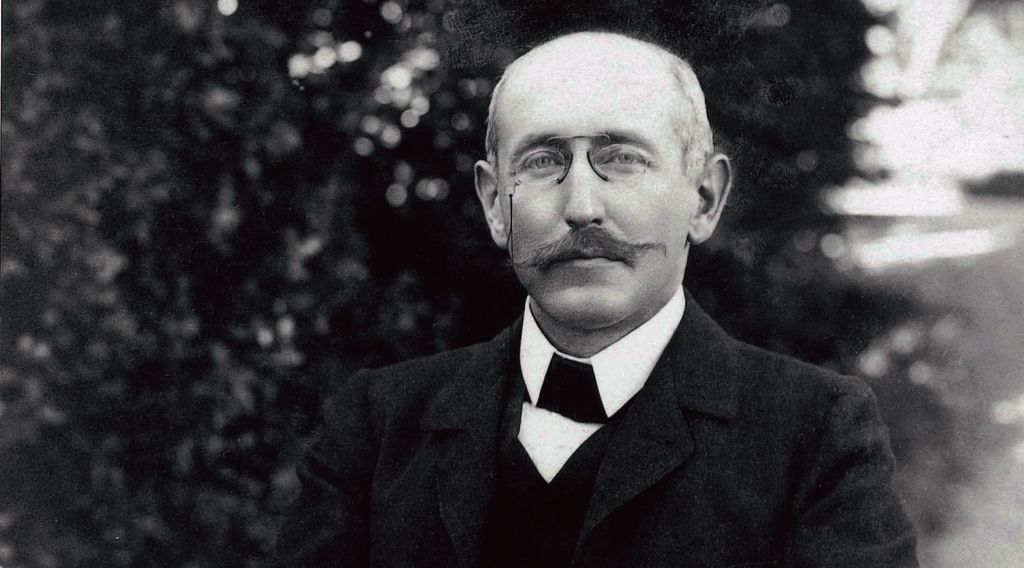 I'd heard about L'Affaire Dreyfus since high school, and I could have answered a trivia question that asked about Emile Zola and J'Accuse, but beyond that I didn't know much of anything about it, other than it involved the French army and nasty anti-Semitism. On a recommendation from Peter Hitchens (see above), I decided to try Robert Harris's historical novel about the Dreyfus Affaire, and I've been thinking about it ever since I read it.The most remarkable thing about this remarkable story is that virtually all of the major and minor characters in the novel were actual historical people. The story is both thrilling, sickening, and fascinating. And, to look back with hindsight and know that within 20 years of the original event France's army would be decimated in the Great War gives the entire story a foreboding quality.(I listened to the audio version of this novel, read by David Rintoul. He is an EXCELLENT reader, and I cannot recommend the audiobook highly enough.)★★★★ An Officer and a Spy
I'd heard about L'Affaire Dreyfus since high school, and I could have answered a trivia question that asked about Emile Zola and J'Accuse, but beyond that I didn't know much of anything about it, other than it involved the French army and nasty anti-Semitism. On a recommendation from Peter Hitchens (see above), I decided to try Robert Harris's historical novel about the Dreyfus Affaire, and I've been thinking about it ever since I read it.The most remarkable thing about this remarkable story is that virtually all of the major and minor characters in the novel were actual historical people. The story is both thrilling, sickening, and fascinating. And, to look back with hindsight and know that within 20 years of the original event France's army would be decimated in the Great War gives the entire story a foreboding quality.(I listened to the audio version of this novel, read by David Rintoul. He is an EXCELLENT reader, and I cannot recommend the audiobook highly enough.)★★★★ An Officer and a Spy
Deep Work: Rules for Focused Success in a Distracted World, by Cal Newport
 Tim Ferriss has this great question he asks the guests on his podcast: "What is the one book you've most gifted--given to other people--in the last year?" For me, one of the books (the other being Rocket Fuel, see below) I've most gifted in the past couple of years is Deep Work. I wrote in greater detail about this book in May 2016, so here I'll just say that though I'm constantly surprised at how few people I know seem willing to do anything about the problems of distraction in our wireless world, maybe that unwillingness will give those of us who are trying to learn how to focus a competitive advantage.★★★★ Deep Work
Tim Ferriss has this great question he asks the guests on his podcast: "What is the one book you've most gifted--given to other people--in the last year?" For me, one of the books (the other being Rocket Fuel, see below) I've most gifted in the past couple of years is Deep Work. I wrote in greater detail about this book in May 2016, so here I'll just say that though I'm constantly surprised at how few people I know seem willing to do anything about the problems of distraction in our wireless world, maybe that unwillingness will give those of us who are trying to learn how to focus a competitive advantage.★★★★ Deep Work
Rocket Fuel: The One Essential Combination That Will Get You More of What You Want From Your Business, by Gino Wickman and Mark C. Winters
 Reading this book permanently changed the way I think about my role as the leader of an organization. The argument in Rocket Fuel is simple: at the top of any organization, there needs to be a partnership between the visionary--usually but not always the point leader--and an integrator, who implements the vision.The book gives some helpful tips for finding out which role you are better suited for, and how to find your counterpart. Very simple ideas, but powerful in practice.★★★ Rocket Fuel
Reading this book permanently changed the way I think about my role as the leader of an organization. The argument in Rocket Fuel is simple: at the top of any organization, there needs to be a partnership between the visionary--usually but not always the point leader--and an integrator, who implements the vision.The book gives some helpful tips for finding out which role you are better suited for, and how to find your counterpart. Very simple ideas, but powerful in practice.★★★ Rocket Fuel
Voyage to Alpha Centauri, by Michael D. O'Brien
 Michael D. O'Brien has become one of my favorite novelists, and this long novel about a long journey to our nearest solar system set in the near future has been rattling around in my mind since I finished it over 2 years ago. O'Brien is not a science-fiction novelist, and this isn't really a science-fiction novel so much as a religious novel: in a secular future, a lonely, irascible scientist is invited to be a passenger aboard the first manned spaceship to leave our galaxy. I found the description of the ship and the technological advances it contains as well as the bureaucratic rigidity and cruelty that the main character faces to be both believable and terrifying. This isn't a perfect novel, and though I'm inclined to agree with this reviewer's criticism here, I actually think it stands up over time. Of all the books I read in 2016, this is the one that has most haunted my thoughts 2 years later.★★★★1/2 Voyage to Alpha Centauri
Michael D. O'Brien has become one of my favorite novelists, and this long novel about a long journey to our nearest solar system set in the near future has been rattling around in my mind since I finished it over 2 years ago. O'Brien is not a science-fiction novelist, and this isn't really a science-fiction novel so much as a religious novel: in a secular future, a lonely, irascible scientist is invited to be a passenger aboard the first manned spaceship to leave our galaxy. I found the description of the ship and the technological advances it contains as well as the bureaucratic rigidity and cruelty that the main character faces to be both believable and terrifying. This isn't a perfect novel, and though I'm inclined to agree with this reviewer's criticism here, I actually think it stands up over time. Of all the books I read in 2016, this is the one that has most haunted my thoughts 2 years later.★★★★1/2 Voyage to Alpha Centauri
Advise and Consent: A Novel of Washington Politics, by Allen Drury
 I read this 1959 novel over Thanksgiving break 2 years ago, but I found myself thinking about it constantly during the confirmation hearings for Justice Brett Kavanaugh earlier this fall. Advise and Consent is a long novel about a national political controversy, not unlike the Kavanaugh controversy in that it brings political passions to boil over. It's about what men will do to gain power, and about how ideology causes people to congratulate themselves on their deceit. The central act of the novel is a betrayal that is among the nastiest, cruelest things I've ever read, which has caused me to think about the Presidents in my lifetime--would these men resort to that kind of action? I fear the answer is yes. This is a book for anyone who loves politics (and you'd better love politics, since the book is over 700 pages long); along with Richard Ben Cramer's nonfiction magnum opus What It Takes: The Way to the White House, which I wrote about here, Advise and Consent is one of the best political books I've ever read.★★★1/2 Advise and Consent
I read this 1959 novel over Thanksgiving break 2 years ago, but I found myself thinking about it constantly during the confirmation hearings for Justice Brett Kavanaugh earlier this fall. Advise and Consent is a long novel about a national political controversy, not unlike the Kavanaugh controversy in that it brings political passions to boil over. It's about what men will do to gain power, and about how ideology causes people to congratulate themselves on their deceit. The central act of the novel is a betrayal that is among the nastiest, cruelest things I've ever read, which has caused me to think about the Presidents in my lifetime--would these men resort to that kind of action? I fear the answer is yes. This is a book for anyone who loves politics (and you'd better love politics, since the book is over 700 pages long); along with Richard Ben Cramer's nonfiction magnum opus What It Takes: The Way to the White House, which I wrote about here, Advise and Consent is one of the best political books I've ever read.★★★1/2 Advise and Consent
The Rest of My 2014 Reading List (Some Great, Some Worthless--in Chronological Order)
Silence: A Novel, by Shusaku Endo
An historical novel about Jesuit missionaries to Japan during a time of great persecution in the 17th century, Silence asks the question, Is it right to deny Christ in order to alleviate suffering? I think the novel gives one answer, whereas Martin Scorsese's excellent film adaptation gives a contrary one. I'd recommend both the book and the movie.★★★ Silence
The New Rules for Love, Sex, and Dating, by Andy Stanley
The sermon series on which this book was based was excellent, the book less so.★★ The New Rules for Love, Sex, and Dating
Tortured for Christ, by Richard Wurmbrand
A famous memoir about the evils of Communism and the horrors of Ceaucescu's rule in Romania.★★ Tortured for Christ
Moonfleet, by J. Meade Faulkner
This is an adventure story along the lines of Treasure Island or Kidnapped--though not as good as either--written at the end of the 19thcentury about the south coast of England during the 1750s. A recommendation from Peter Hitchens (see above), it had me reaching for the dictionary, but I loved the antiquated speech of the characters.★★1/2 Moonfleet
Arts and Entertainments: A Novel, by Christopher Beha
This novel made me queasy the whole time I was reading it, and I had to make a commitment finish it. It's about a guy who sells a sex-tape that contains a scene with a now-famous ex-girlfriend. What made me queasy was not the sex-tape (no details are given), but the nauseating sense of celebrity culture and reality television that pervades the novel, and, of course, everyday life. This novel is a satire, and Mr. Beha clearly does not think that reality television is a good thing; nonetheless, I still disliked reading about it.★ Arts and Entertainments
Discovering the Shepherd: a Study of Psalm 23, by G.E. Johnson
The Big Short: Inside the Doomsday Machine, by Michael Lewis
Infuriating, because the people who did the wrong thing got away with it. Interesting portraits of the sort of people who saw what no one else actually wanted to see, even though the evidence was there the entire time.★★ The Big Short
Fight for the Forgotten: How a Mixed Martial Artist Stopped Fighting for Himself and Started Fighting for Others, by Justin Wren & Loretta Hunt
Justin is a friend of mine; the story of his conversion to Christianity and his subsequent adoption by a Pygmy tribe in the Congo Rainforest is one of the more amazing stories I've heard. I'd rate this book higher, but hearing "the Big Pygmy" speak in person has spoiled it for me.★★ Fight for the Forgotten
Reflections on the Psalms, by C.S. Lewis
Great chapters on the violent psalms and on the use of scripture. Really insightful book. Recommended.★★★ Reflections on the Psalms
Dictator: A Novel, by Robert Harris
3rd and final novel in a trilogy about the ancient Roman statesman Cicero. Very creative. Gave me a lot of perspective on ancient Rome, and the fall of the Roman Republic. I liked this, but not as much as An Officer and a Spy by the same author (see above). Certainly worth reading, though.★★★1/2 Dictator
Fifth Business, by Robertson Davies
A very strange novel about the life of a Canadian bachelor. Don't really know if I liked it or not.★★ Fifth Business
Spirituality of Gratitude: The Unexpected Blessings of Thankfulness, by Joshua Choonmin Kang
Simple, holy reflections on gratitude.★★ Spirituality of Gratitude
Unleashing Opportunity: Why Escaping Poverty Requires a Shared Vision of Justice, by Michael Gerson, Stephanie Summers, and Katie Thompson
This is the kind of book in which the authors say things like "Government and church should work together to help children." Okay.... But what does that mean? The only part of the book I found interesting was the chapter on payday lending. Banks usually lend money to people that can pay it back; in payday lending, the whole point is to lend money so that people will never pay it back.★ Unleashing Opportunity
The Power of TED* (The Empowerment Dynamic), by David Emerald
The drama triangle stuff is worth the price of the book, though the little fable is a bit much for me.★★ The Power of TED*
Manage Your Day-to-Day: Build Your Routine, Find Your Focus, and Sharpen Your Creative Mind (99U)
Simple little book. Worth reading for those who are in the creative professions and struggle with distraction. I really liked the ideas of routine. Reminded me of what I already knew (which is not a bad thing).★★ Manage Your Day-to-Day
Team of Teams: New Rules of Engagement for a Complex World, by General Stanley McChrystal, Tantum Collins, David Silverman, and Chris Fussell
I previously reviewed this book. From that review:
Team of Teams is an interesting, thorough book (I've only referenced a very small part of its content here), but I'm not totally convinced by its argument. General McChrystal and his co-authors argue that in our complex world, a great team or team of teams is a greater strategic advantage than a great leader. I agree with that, as far as it goes, and I think the insights in the book about how to create an organizational culture that is adaptable and resilient are helpful. But, I can't help thinking that part of the story of the book is also that it takes a great leader to create that kind of organizational culture. Maybe the kind of leader who could lead that kind of change would end up thriving in any situation, complex or not. The Admiral Nelsons of the world might just make any team successful. A team is important, but a team requires a leader. As Bill Hybels likes to say, 'Everything rises and falls on leadership.' As I said, the more I read General McChrystal‘s book, the more I thought, 'This guy is impressive.'
If You Can Keep It: The Forgotten Promise of American Liberty, by Eric Metaxas
When asked by a passerby in 1787 what the Framers of the Constitution had been creating on behalf of the American people, Ben Franklin replied "A republic, if you can keep it." I strongly dislike both the Bonhoeffer and Luther biographies by Metaxas--I can't stand his writing style--but I really liked this little book about America. Highly recommended.★★★ If You Can Keep It
The Chimera Sequence, by Elliott Garber
Look up "Beach Read" in the dictionary, and this novel about mountain gorillas and terrorists and heroic scientists would be pictured.★ The Chimera Sequence
Laurus, by Eugene Vodolazkin, trans. by Lisa C. Hayden
After reading Rod Dreher's rhapsodic review of this modern Russian novel, I wanted to like it...but I just didn't. I thought it was okay and interesting, but nothing close to as good as he seems to think.★ Laurus
Streamline: How to Create Healthy Church Systems, by Michael Lukaszewski
★★ Streamline
Leadership Axioms, by Bill Hybels
One of the many sad parts of the Bill Hybels situation this year is that Bill was someone with good stuff to say...if only he would have applied it to himself. This is a good book, regardless of its author's hypocrisy and failings.★★★ Leadership Axioms
With: A Practical Guide to Informal Mentoring and Intentional Disciple-Making, by George G. Robinson and Alvin L. Reid
I remember literally nothing about this book.★ With
The Checklist Manifesto: How to Get Things Right, by Atul Gawande
Really interesting case studies (aviation, surgery, etc.) of the usefulness of checklists.★★ The Checklist Manifesto
Werewolf Cop: A Novel, by Andrew Klavan
Yes, I actually read this. And no, I have no idea why.★ Werewolf Cop
Red Moon Rising: Rediscover the Power of Prayer, by Pete Grief and Dave Roberts
I heard Pete Grieg give a talk at a conference, and so I bought this book. Wasn't particularly helpful to me, though I was struck by the 24-7 Prayer emphasis.★ Red Moon Rising
The Simple Technique Anyone Can Use To Become a Better Communicator (Immediately)
Burial at Sea
"We therefore commit his body to the deep, to be turned into corruption, looking for the resurrection of the body, when the Sea shall give up her dead, and the life of the world to come, through our Lord Jesus Christ, who at his coming shall change our vile body, that it may be like his glorious body, according to the mighty working, whereby he is able to subdue all things to himself."Amen," said the assembled men.
--from The Terror, by Dan Simmons
Father's Day Book Ideas
If you need some gift ideas for yer pops, you can't do better than a great book. You can click through and read my?2013, 2014, and 2015?reading lists for some ideas, but below I've listed five books I've not mentioned previously elsewhere, plus a bonus suggestion if you really like the father in your life.
Matterhorn: A Novel of the Vietnam War, Karl Marlantes
The title says it all. Karl Marlantes, a Rhodes Scholar who volunteered to serve in Vietnam, saw action there as a green Second Lieutenant in the U.S. Marines. Those experiences obviously lie behind the terror, bravery, and misery he describes here.
Once an Eagle, by Anton Myrer
Another war novel. I was browsing the end notes of Tim Ferriss's?Tools of Titans and saw that?Stanley McCrystal referenced it. (It's my understanding that it's required reading for all the cadets at West Point.) It's the story of an American soldier who serves in the First World War and through the Second. The combat descriptions in the First World War scenes are among the most brutal I've read anywhere. I think every American man should read this book. (Be warned--it is?long: 1300 pages!)
Angels Flight (A Harry Bosch Novel),?by Michael Connelly
I discovered the Harry Bosch series by Michael Connelly last year, and at this point I've read 14 of the 21 Bosch novels. Harry Bosch is a homicide detective in the L.A.P.D., and Connelly has a gift for bringing the Los Angeles underworld to life in vivid detail. Angels Flight takes place right after the Rodney King incident, and I think it's one of Connelly's best novels (though I'd recommend all of them).
Little Britches: Father and I Were Ranchers, by Ralph Moody
As I mentioned in a previous post, we read through this memoir as a family earlier this year. For dads who need a great book to read with their kids, I can't recommend Little Britches?highly enough. Ralph Moody lived on the Colorado prairie as a boy in the early 1900s, and this memoir tells about the hard but rewarding life he experienced there. Great for dads and kids alike.
The Rage Against God: How Atheism Led Me to Faith, by Peter Hitchens
Peter Hitchens has become one of my favorite journalists, and I read his columns and blog at "The Mail on Sunday" regularly. Mr. Hitchens is the brother of the late Christopher Hitchens, a man well-known for his strident atheism. Peter Hitchens, in contrast, had an adult conversion to conservative Anglicanism, and this book is partly a memoir of that journey.
*Bonus* Suggestion, If You REALLY ?Like Your Dad: a Fancy Bible
As I mentioned in my post about my 2018 Bible reading plan, I bought myself a fancy Bible to read through in 2018:?a Cambridge Clarion Reference ESV in Black Goatskin. I'm telling you: this Bible is just so beautiful you can't NOT pick it up and read it. Buy your dad a Bible, and encourage him to read through the New Testament with me, starting August 24.
I‘ve written a very short whitepaper on a subject I care a lot about communication.Subscribe to my newsletter and I’ll send it to you for free:The Simple Technique Anyone Can Immediately Use To Become a Better Communicator.(If you are already a subscriber, drop me a line and I'll send you the whitepaper.)
"Annihilation"--Book Review
I finished the Jeff VanderMeer science-fiction/horror novel Annihilation last month; the movie opens this week. [No spoilers below, by the way.] I?d seen the trailer for the movie online and was intrigued by the BASED ON THE ACCLAIMED BEST-SELLING NOVEL? title that flashes across the screen, so I put the novel on hold at the library. (I?d not heard of it previously.) My verdict, now that I‘ve read it? If the movie Annihilation?is anything like the novel?Annihilation,?it will be STRANGE.The novel begins in medias res as a team of four women?each unidentified, except for her title: psychologist, anthropologist, surveyor, and our narrator the team biologist?begin to explore a wild coastal wilderness known as Area X. Area X is beyond a mysterious border that requires the women to have been hypnotized to pass through it; the team‘s mission is to research the area and report back to some mysterious agency called The Southern Reach. Almost immediately, the team stumbles across a mysterious underground tower,? the top of which begins at the earth‘s surface. The entrance leads to a spiral staircase that continues underground. The team explores the tower, and below ground, in the dark, they discover a long stream of words running along the wall. The string begins
Where lies the strangling fruit that came from the hand of the sinner I shall bring forth the seeds of the dead to share with the worms that?.etc.
The biologist comes close to the words and discovers that they are in fact a living organism or organisms, perhaps some type of fungus. They return to the surface, and strange things begin to happen.Or, at least, strange things are implied and occasionally shown. The strangeness of the novel slowly increases the more you read, because the characters in the midst of the strangeness don't seem to be overly bothered by it, which I take is the effect the author was going for: the very fact that everyone in Area X takes its increasing weirdness in stride is a clue to us that the entire situation is uncanny. We wonder, What‘s wrong with these women? Why is our narrator so matter-of-fact in describing a situation that is so utterly bizarre?The novel in fact is so bizarre that I finished it and had to ask myself, What was this about?Now, you should know that almost none of the scenes in the movie trailer is actually in the novel, but if you're planning on seeing it, expect it to be?weird. And let me know if you figure it out.
A Faith Unafraid of the Hard Questions
I believe very strongly that the Christian faith has nothing to fear from hard questions. If what we believe is True, then it can withstand even the most intense cross-examination. In fact, I think we ought to welcome hard questions, because hard, honest questions are often used by God to bring people to faith. This was certainly the belief of the great missionary and evangelist E. Stanley Jones (1884-1973), friend to Gandhi and missionary to India. In his missionary work Jones often fearlessly debated with people who were hostile to Christianity, and in his most famous book he explains how he came to be unafraid of even the hardest questions about faith. Facts, he realized, are faith's friends. In his best-selling book The Christ of the Indian Road?(1925), Jones writes:
?I have found a good many nervous Christians since coming home who are afraid that this whole thing of Christianity might fall to pieces if someone should get too critical, or if science should get too scientific. Many of the saints are now painfully nervous. They remind me of a lady missionary with whom I walked home one night after a very tense meeting in a Hindu theater. She said, Mr. Jones, I am physically exhausted from that meeting tonight. When I asked her the reason she said, Well, I didn‘t know what they were going to ask you next, and I didn‘t know what you were going to answer, so I‘ve been siting up there in the gallery holding on to the bench with all my might for two hours, and I'm physically exhausted!? There are many like our sister who are metaphorically holding to their seats with all their might lest Christianity fall to pieces under criticism!I have a great deal of sympathy with them, for I felt myself in the same position for a long time after I went to India. The whole atmosphere was acid with criticism. I could feel the acid eat into my very soul every time I picked up a non-Christian paper. Then there came the time when I inwardly let go. I became willing to turn Jesus over to the facts of the universe. I began to see that there was only one refuge in life and that was in reality, in the facts. If Jesus couldn‘t stand the shock of the criticism of the facts discovered anywhere, if he wasn‘t reality, the sooner I found out about it the better. My willingness to surrender Christ to the facts was almost as great an epoch in my life as my willingness to surrender to him?. I saw that [Jesus] was not a hothouse plant that would wither under the touch of criticism, but he was rooted in reality, was the very living expression of our moral and spiritual universe?he was reality itself?.The only way to kill Christianity is to take it out of life and protect it. The way to make it shine and show its genius is to put it down in life and let it speak directly to life itself. Jesus is his own witness?.I am therefore not afraid of the question hour, for I believe that Jesus underlies our moral and spiritual universe deeper than the force of gravity underlies our material universe.from?The Christ of the Indian Road, by E. Stanley Jones
Make your inbox more interesting: click?here‘to subscribe to regular updates from this blog.
General McChrystal and the Butterfly Effect
In fall 2003, General Stanley McChrystal?was appointed the commander of the Joint Special Operations Command, giving him authority over what were the best-trained, best-equipped, and most-lethal special operators in the history of the world. And yet, these elite soldiers (Navy Seals, Delta Force commandos, etc.) were unable to stop impoverished jihadists from using the most basic technology to create mass murder in Iraq. Why? McChrystal's answers have a lot to do with the realities of leadership in the 21st century.
Stan McChrystal
Like most Americans, I'd heard of General Stanley McChrystal from his time in the headlines during the wars in Iraq and Afghanistan. I'd seen a TED talk he'd given on leadership, but a few months ago I stumbled across a couple of interviews with General McChrystal on the Tim Ferris podcast that made me think: "This guy is impressive." (You can find the long interview here and the much shorter follow-up here. Recommended.) On the podcast, General McChrystal and his former aide-de-camp Chris Fussell mention a book they'd written called?Team of Teams: New Rules of Engagement for a Complex World. I read the book, which confirmed my impression: these are?impressive guys.
The Problem with Al-Queda
When General McChrystal became commander of the JSOC in 2003, he was frustrated by his force's apparent inability to defeat Al-Qaeda in Iraq (AQI), led by?Abu Musab al-Zarqawi. McChrystal may have had enormous resources at his fingertips, but his special operators always seemed one step behind AQI's terrorists, and the result was a bloodbath in Iraq, exemplified by the September 30, 2004 bombing of an opening ceremony at a brand new water treatment plant in Baghdad that killed 41 people, including?35 children.The U.S. military easily defeated Saddam Hussein's army during the invasion, but, in the occupation, a small number of impoverished terrorists were literally destroying the country. How?The answer, General McChrystal learned, had to do with complexity.
Complexity and the Butterfly Effect
In everyday usage, we tend to use the words?complicated and complex interchangeably, but in?Team of Teams General McChrystal points out that in chaos‘theory?complex refers to situations that are made up of innumerable possible causes and effects such that correctly forecasting or planning for an outcome is literally impossible. Weather, for example, is an example of a complex system.The famous butterfly effect refers to the idea that, in a complex system, a very small change in input can produce a great difference in output: the flap of a butterfly's wings in Africa might?(but not necessarily) result in a hurricane in Brazil. The weather man can forecast the next hour's weather with relative accuracy, but forecasting weather a week from now is just a guessing game, because weather is a complex system: there are just too many variables.The modern world is a complex world, which means that small inputs can make a great difference. The problem for McChrystal and the U.S. was that AQI was set up to thrive in a complexity, whereas JSOC, for all its power and wealth of resources, was not.
Team of Teams
On the small level, the individual SEAL and Delta Force and intelligence teams at McChrystal's disposal were excellent, but the organization of JSOC itself hindered cooperation and made adaptability impossible. The main strategic advantage of?AQI, on the other hand, was precisely in its ability to adapt. McChrystal's insight was that if JSOC was going to defeat AQI, it would have to become as adaptable as its enemy.The individual SEAL and Delta Force and intelligence teams were already capable of adaptability, which is why there were so effective; McChrystal's reform was to get them working together as a team of teams. He did this by constantly pushing authority?down the chain of command, even when that meant relatively junior officers were making decisions with huge national security implications. He required each of the various groups in his command to send one elite operator to work with the other groups, so that trust began to be built between teams. He conveyed a daily briefing that involved hundreds of participants (via video) from all over the world so that information could be shared as widely as possible. Over time, these and other reforms began to enable the JSOC to effectively adapt to AQI's tactics, and one of the stories McChrystal tells in the book is how these reforms enabled JSOC to track and kill Zarqawi in 2006.
Conclusion
Team of Teams is an interesting, thorough book (I've only referenced a very small part of its content here), but I'm not totally convinced by its argument. General McChrystal and his co-authors argue that in our complex world, a?great team or team of teams is a greater strategic advantage than a great leader. I agree with that, as far as it goes, and I think the insights in the book about how to create an organizational culture that is adaptable and resilient are helpful. But, I can't help thinking that part of the story of the book is also that it takes a great leader to create that kind of organizational culture. Maybe the kind of leader who could lead that kind of change would end up thriving in any situation, complex or not. The Admiral Nelsons of the world might just make any team successful. A team is important, but a team requires a leader. As Bill Hybels likes to say, "Everything rises and falls on leadership." As I said, the more I read General McChrystal's book, the more I thought,?"This guy is?impressive." Team of Teams: New Rules of Engagement for a Complex World,?by General Stanley McChrystal, Tantum Collins, David Silverman, and Chris Fussell???? worth reading
Click?here‘to subscribe to regular updates from this blog.
In Praise of "Deep Work"
As focused attention becomes rarer and rarer in our distracted culture, the people who cultivate focused attention will find themselves becoming more and more valuable. In other words, you can't afford NOT to be doing deep work. This is the thesis of the book Deep Work: Rules for Focused Success in a Distracted World by Cal Newport, a book that I cannot recommend highly enough. Here's why.
Deep Work: A Definition
Cal Newport, computer science professor at Georgetown University, defines deep work in this way:
Deep Work: professional activities performed in a state of distraction-free concentration that push your cognitive capabilities to their limit. These efforts create new value, improve your skill, and are hard to replicate.
In contrast with deep work is shallow work:
Shallow Work: noncognitively demanding, logistical-style tasks, often performed while distracted. These efforts tend to not create much new value in the world and are easy to replicate.
Most knowledge workers spend most of their time engaged in shallow work--email, anyone--so that, though they may be busy, they are not productive.The people who are writing the best-selling books, making the blockbuster movies, creating the irresistible advertising campaigns, winning the major tournaments, and leading the market-beating companies, these are the people who are doing deep work (whether they realize it or not). Deep work makes a difference.
The Deep Work Hypothesis
The prevalence of shallow work in our culture leads to Newport's deep work hypothesis.
The Deep Work Hypothesis: The ability to perform deep work is becoming increasingly rare at exactly the same time it is becoming increasingly valuable in our economy [and becoming valuable because it is becoming rare--AF]. As a consequence, the few who cultivate this skill, and then make it the core of their working life, will thrive.
Newport also argues that deep work actually makes people happier. As someone who has certainly spent a day being busy without being productive, I know that he's right: I'm happier when I'm able to focus.So, if you want to thrive in our knowledge work economy and if you want to be happier while doing it, you need to learn how to do deep work.
The Deep Work Rules
Newport has come up with what he calls The Rules of Deep Work.
- Work Deeply
- Embrace Boredom
- Quit Social Media
- Drain the Shallows
1. Work Deeply
Deep work is something we can learn how to do. Focused attention is not something you can just turn on or off--it's something that must be trained and cultivated, like a muscle. Just as someone who spends his time sitting on the couch eating Doritos and watching television cannot overnight become a marathon champ, neither can someone who spends his time like that be immediately good at deep work. Deep work requires practice and planning.
2. Embrace Boredom
Internet tools (social media, on-demand video, infotainment sites, etc.) have taught our minds to need constant stimulation, but deep work requires focused attention, and our need for shallow stimulation will undermine our ability to do deep work. Therefore, we need to embrace boredom. It's good to resist the urge to pull out your smart phone when waiting in line at the post office: our minds need boredom.
3. Quit Social Media
You knew this was coming, right? Newport makes the argument that people who are actually producing deep work (best-selling authors like Michael Lewis, e.g.) produce deep work because they do not allow themselves to be distracted by social media. I know lots of people believe that social media is like alcohol--to be used and enjoyed in moderation. I wonder, though, if social media is more like heroin: addictive and distracting for everyone. (UPDATE: In conversation, I could say something provocative like that and you'd understand from my jocular tone what I was trying to convey, but I realize that, if you just read those words, they come across differently. My church actively uses social media (and I use it, too) and I have many friends who work in social media marketing; if I really believed that social media was the same thing as heroin, I'd stop using it immediately. I think social media marketing is necessary in our culture. My point is just that I think all of us are much more easily distracted than we want to admit.)
4. Drain the Shallows
By "drain the shallows," Newport means that we should aggressively eliminate the non-essential from our working lives. For example, he gives practical tips on how to cut down on email, a major source of shallow work for most people.
Why I Need This Book
About 45 times a year, year after year, my professional responsibilities require me to create a brand-new, relevant, engaging, and faithful presentation and then deliver it in front of an average live audience of about 1,000 people, each one of whom is judging me savagely (even if they seem to be nice people!) on that presentation. In addition to that, I also create multiple smaller presentations and essays through the year that also need to be original, relevant, helpful, and faithful. In our distracted world, it seems as if everything but the truly important is screaming LOOK AT ME! PAY ATTENTION TO ME!, and so I've come to the following conclusion:
if I don't learn to do deep work, I'm not going to make it.
Deep Work is one of the most insightful, practical, and challenging books I've read about work and creativity...maybe ever. I cannot recommend this book highly enough.★★★★ excellent
Note on My Rating System
I use a 5 star system in my ratings to signify the following:
★★★★★ life-changing and unforgettable★★★★ excellent★★★ worth reading★★ read other things first★ not recommended
Click here to subscribe to updates from this blog. (I'm sure Cal Newport would approve.)
My 2015 Reading List
I set a goal to read 50 books in 2015. In September, I revised my goal down to 40?and I hit it! What follows is my reading list for 2015, in chronological order. (Click here to see my post on the best 6 books I read last year.)
My Ratings
??????life-changing and unforgettable?????? excellent???? worth reading??? read other things first??? not recommended The Class Meeting: Reclaiming a Forgotten (and Essential) Small Group Experience,?by Kevin Watson. Clear, simple book about the most important building block of the Methodist movement. ??? Notes from Underground, by Roger Scrunton. Novel about the dissident movement in communist Prague in the 1980s, and the way freedom was a betrayal and a disappointment for the movement's ideals. Scruton is a very interesting philosopher and thinker. ??? Outliers: The Story of Success,?by Malcolm Gladwell. I wrote about?Outliers in my Best Books of 2015 post. ???? You'll Get Through This: Help and Hope for Your Turbulent Time, by Max Lucado. ??? Blink: The Power of Thinking Without Thinking, by Malcolm Gladwell. My least favorite of the Gladwell books. ?? David and Goliath: Underdogs, Misfits, and the Art of Battling Giants,?by Malcolm Gladwell. Some really interesting stories of turning weaknesses into strengths. I think his reading of the David and Goliath story in 1 Samuel 17 is right on. ??? Meeting God in Mark: Reflections for the Season of Lent,?by Rowan Williams. Typically well-written insights from the former Archbishop of Canterbury. ??? Mark: the Gospel of Passion (the Biblical Imagination Series),?by Michael Card. I like his creative, faithful thoughts on the Gospels. ??? The Tipping Point: How Little Things Can Make a Big Difference,?by Malcolm Gladwell. The stuff on "connectors," "mavens," and "salesmen" was helpful to me. ??? The Culture Code: An Ingenious Way to Understand Why People Around the World Live and Buy As They Do,?by Cloture Rapaille. I think the basic premise--that different objects mean different things to different cultures--makes sense, but I think he really stretches to make some of the points he does. ? The Radetzky March, by Joseph Roth. I wrote about?The Radetzky March?in my?Best Books of 2015?post. ???? The Epic of Eden: A Christian Entry Into the Old Testament, by Sandra Richter. I LOVE this book, which provides a cohesive vision for understanding the Old Testament. Highly recommended for anyone who has trouble making sense of‘the Old Testament. ??? Every Man a King, by Bill Kauffman. Vulgar, convoluted, with a ridiculous plot: I hated this book. (This 1 star review on Amazon does a good job capturing what I disliked--I didn't write that review.) ? Seabiscuit: An American Legend, by Laura Hillenbrand. Good, not great. A story about a horse can only be so captivating, and I much preferred?Unbroken, which I wrote about last year. ??? Little Failure: A Memoir, by Gary Shteyngart. Really funny, particularly the parts about this Russian Jewish immigrant learning to be a good American. ??? To Live Is Christ to Die is Gain, by Matt Chandler. Based off his sermon series. ?? Faithful: a Theology of Sex by Beth Felker Jones. ?? Autopsy of a Deceased Church: 12 Ways to Keep Yours Alive, by Thom S. Rainer. ?? The Martian, by Andy Weir. Might be a good movie (haven't seen it), but not a great novel. ?? Simplify: Ten Practices to Unclutter Your Soul by Bill Hybels. Important topic, but I didn't find the book all that helpful. ?? Crazy Busy:A (Mercifully) Short Book about a (Really) Big Problem, by Kevin DeYoung. Helpful, particularly the chapter on acedia. ??? An Unhurried Life: Following Jesus' Rhythms of Work and Rest, by Alan Fadling. I wrote about An Unhurried Life?in my?Best Books of 2015?post. ??? Kristin Lavransdatter, by Sigrid Undset. I wrote about?Kristen Lavransdatter?in my?Best Books of 2015?post. ????? Do Not Live Afraid: Faith in A Fearful World, by John Indermark. ?? Unapologetic: Why, Despite Everything, Christianity Can Still Make Surprising Emotional Sense, by Francis Spufford. Although Mr. Spufford and I would disagree on a number of issues, his sincere devotion and creative approach won me over. Recommended for someone who might want to think about the Christian faith from an unconventional starting point. ??? The Searchers: A Quest for Faith in the Valley of Doubt by Joe Loconte. I really like Professor Leconte's reading of the Emmaus story. ??? The Thirty-Nine Steps, by John Buchan. ??? Thriving in Babylon: Why Hope, Humility, and Wisdom Matter in a Godless Culture, by Larry Osborne. Book never really lived up to the promise of the title. ?? How (Not) To Be Secular: Reading Charles Taylor, by James K.A. Smith. People I respect were enthusiastic about this book, and though it offers some helpful insights into Taylor's work, in general I thought it was poorly written, full of academic jargon and convoluted sentences. If it were not for the fact that I think Taylor's insights into our secular age are worth hearing, I would otherwise give this book a lower rating. Very disappointing. ??? Accidental Pharisees: Avoiding Pride, Exclusivity, and the Other Dangers of Overzealous Faith,?by Larry Osborne. ?? The Jesus Cow: a Novel, by Michael Perry. What do I say 2 stars means? Right: "read other things first." Exactly. ?? Compassion Without Compromise: How the Gospel Frees Us to Love Our Gay Friends Without Losing the Truth, by Adam Barr and Ron Citlau. Honestly, I don't remember anything about this book. I don't know if that's my fault or the authors'. ?? The Life-Changing Magic of Tidying Up: The Japanese Art of Decluttering and Organizing, by Marie Kondo. This lady is weird--we're supposed to talk to our clothes and books?--but I actually kinda liked this book. ??? The Heart and the Fist: The Education of a Humanitarian, the Making of a Navy SEAL, by Eric Greitens. ?? The Great Christ Comet: Revealing the True Star of Bethlehem, by Colin Nicholl. First of all, this is physically a beautiful book: hardback, with glossy illustrations on nearly every page. An exhaustive study of the topic. ??? The Hunger Games,?by Suzanne Collins. I wrote about?The Hunger Games?in my?Best Books of 2015?post. ??? Catching Fire, by Suzanne Collins. Better than?Mockingjay,?worse than?The Hunger Games. ?? Creativity, Inc., by Ed Catcall. I wrote about?Creativity, Inc.in my?Best Books of 2015?post. ???? The Means of Grace: Traditioned Practice in Today's World, by Andrew Thompson. Good, clear summary of ways people have learned to connect to God. ??? Mockingjay, by Suzanne Collins. Not a good book. But, to be expected: wrapping up complicated plot lines neatly is difficult. ?
My 2016 Reading Goal
Once again, I‘ve set myself a goal of reading 50 books this year. What about you?do you have a reading goal for the year?[Here are my?2013?and?2014?reading lists, respectively.]
If you love books, click?here‘to subscribe to my blog updates, delivered right to your inbox.
The Best Books I Read in 2015
I set a goal to read 50 books in 2015. In September, I revised my goal down to 40...and I hit it! What follows is my list of the best 6 books I read in 2015, in chronological order.
(Update: My entire 2015 reading list is here.)
My Rules
I only count books I read all the way through, cover to cover. I read lots of journals and periodicals, and in my weekly sermon prep read parts of different books and commentaries, but for my reading goal, none of those count. A book that I keep thinking about, a book that adds enduring value to my life, that‘s a book I’ll define as good. I use a 5 star system in my ratings to signify the following:
★★★★★ life-changing and unforgettable
★★★★ excellent
★★★ worth reading
Books getting less than 3 stars aren‘t on my Best list, which doesn‘t mean they were necessarily bad, but just not books that I’d excitedly recommend to you.
★★ read other things first
★ not recommended
Outliers: The Story of Success, by Malcolm Gladwell
I read all of Malcolm Gladwell's books in 2015; Outliers is my favorite. No man is an island; any amount of success we achieve is due to hard work, of course, but it's also all about right place, right time; success is about our circumstances, our family, and our environment. ★★★★
The Radetsky March, by Joseph Roth
I read because I want to experience life; the books I like best are the ones that evoke other times and other places so acutely that, to paraphrase Robert Frost, they make me remember things I've never known. And, there is something about the vanished places that only exist in memory that are the sweetest and saddest. Since I first read Patrick Leigh Fermor's great memoirs (A Time of Gifts and Between the Wood and Water) I've loved reading works of nostos forMittereuropa, that now-vanished world of the Austro-Hungarian empire, dismantled in World War I and disappeared with murder and concrete by World War Two and the Iron Curtain. After watching The Grand Budapest Hotel, I read about Stephan Zweig, whose work was the inspiration for the Wes Anderson movie. Then, in Zweig's autobiography, I stumbled across a reference to The Radetsky March. I'd never heard it mentioned anywhere else, but it was one of the best books I read in 2015 and the sense of it will stay with me a long time after. So, what is The Radetsky March about? I like Simon Schama's remark:
'Read this and your life will change,' we say, pressing it relentlessly on strangers encountered in Daunt Books who might confuse him with Henry or Philip of the same moniker. 'So what‘s it about?' they reasonably inquire. 'Ah, well,' you say, 'it follows an officer in the Austro-Hungarian army before the first world war, stuck in a provincial border garrison doing nothing in particular except getting drunk on 180 per cent schnapps and haplessly wandering from calamity to disaster ... ' 'Oh, right, thanks,' they say, looking around for an escape route before you can add: 'Oh and, of course, all of human life sex, class, food, music, land, power, and Jews there‘s this scene where Kaiser Franz Joseph runs into an old Hasidic rabbi ... ' But you‘ve already lost them to the Man Booker shortlist table."
The novel is an "elegiac evocation of‘the slow decay of a way of life that disappeared with the collapse of the multinational Habsburg Empire" and about the soft but irresistible pull of that empire towards destruction, and about one family's own petty paralysis in the face of that slow pull. For me,The Radetsky March is all atmosphere, elegy for a world that will never come again. (For a contemporary review of the novel that even then was looking back on a lost world, see this 1933 New York Times piece.) ★★★★
An Unhurried Life: Following Jesus' Rhythms of Work and Rest, by Alan Fadling
"If you had one word to describe Jesus, what would it be?" In An Unhurried Life, Alan Fadling recounts how, when philosopher and theologian Dallas Willard answered that question, he chose relaxed. Fadling writes, "What took root in my own heart [after hearing Willard's one word description] was the desire to know Jesus as an unhurried savior." When I read that sentence last summer, I thought "YES. Me too." I read this book at exactly the right time. I had been feeling harried and shallow for months, feeling as if I could never find quiet, and feeling that God was calling me to prayer and silence. Alan Fadling's book was a blessing to me, and I recommend it to you. ★★★
Kristin Lavransdatter, by Sigrid Unset
Imagine living in a world in which all of reality--everything you could see and touch and taste and smell--was enchanted with the power of God. This is the world of Kristin Lavransdatter. Rod Dreher explains:
The late medievals were heirs to a belief system that regarded the world as enchanted. God was everywhere, and ordered all things to Himself. All of Creation (and it was Creation, not yet Nature) was a sign pointing to its Creator. It is an anachronistic mistake to think that our late medieval ancestors regarded the world as we do, except with a belief in God added to it. They did not. God and things divine were far more present in the imaginations of the people, who looked around them and saw Him. They lived in a cosmos, a universe ordered by God, pregnant with meaning and divine purpose [emphasis in the original]."
Kristin Lavransdatter is an 1,100 page historical novel (actually a trilogy of novels, published in the early 1920s), written by Norwegian writer Sigrid Undset about 14th century Norway. The novel follows the life of the title character (Kristin, daughter of her father Lavrans)
“first as a young girl enjoying bread, butter, dried reindeer, and mead in sunny alpine meadows with her father; then through her thrilling first encounters with the love of her life, the beguiling Erlend Nikulausson, during which Undset precisely renders the romantic heart of a teenage girl; and finally through Kristin‘s adulthood as a brooding but hardworking mistress of a household and mother of many sons."
Carrie Frederick Frost has an insightful essay at First Things (from which I took the above quotation) about Kristin and motherhood and faith. I will never be a mother, but I am a son and a father, and I appreciate Frost's summary of the insight that Kristin gains from motherhood:
“It is through reflection on her own experience of motherhood that Kristin is able to understand her parents’ love for her. After a decade of motherhood she considers the character of her parents’ love: That love had been strong and wide and unfathomably deep; while the love she gave them in return was weak and thoughtless and selfish, even back in childhood when her parents were her whole world. Kristin realizes that even though she loved her parents, her love for them did not approach the love they had for her, and that she now feels this same ‘strong and wide’ love for her own children. Through her maternal meditation, Kristin understands that she belongs to a lineage of love linking her children, herself, her parents, and all of humanity back to God‘s unfathomably deep, parental love."
Kristin Lavransdatter is not just about motherhood, though: like other great epic novels (e.g.War and Peace or Island of the World) it is about all of life: marriage, adultery, hatred, war, forgiveness, and the grace of God. I love this novel. ★★★★★
Creativity, Inc.: Overcoming the Unseen Forces That Stand in the Way of True Inspiration, by Ed Catmull and Amy Wallace
I had an insight last year: my job (or at least the most public aspect of it) is essentially creative. Every single Sunday, 47 weeks a year, I am personally and alone responsible for a 30 minute presentation that is supposed to faithfully convey Christian doctrine, bring the Bible to life, appeal to outsiders and skeptics, nourish the faithful, and, if possible, be both humorous and poignant. And then do it again in 7 days. How is it possible to make that kind of creativity and excellence routine? Ed Catmull is a computer genius in his own right, but he is also a business genius, and as a co-founder and president of Pixar he has been obsessed with creating a culture of creativity since 1986. Creativity Inc. is Mr. Catmull's attempt to put what he has learned down on paper. The result is a business book unlike most business books, and I found myself underlining sentence after sentence as I read. ★★★★
The Hunger Games, by Suzanne Collins
The Hunger Games, Suzanne Collins's dystopian young adult novel, surprised me: it was much better than I expected it to be, and I still find myself thinking about it frequently, months later. The basic story line--how a ruthless elite amuses themselves to death while exploiting the general population in order to maintain their wealth and comfort--strikes me as chillingly similar to life in modern America: we live in The Capital. I think Katniss Everdeen is a totally believable heroine, and I am impressed with Ms. Collins's creativity and vision. ★★★
I'm recommitting to do better about blogging 3 times a week, so click here to subscribe to my blog updates, delivered right to your inbox.
Best of 2015
The editors at www.andrewforrest.org (best blog on the internet?)?have been working long hours and our fingers to the bone to get our 1st annual best-of list together. Yes, we didn't make it by 12/31, but it's not too late to look back at 2015, right?
Best Book I Read in 2015
The Amazon description calls Kristin?Lavransdatter?"the turbulent historical masterpiece of Norway's literary master." I agree that it's a masterpiece (though certainly an overlooked one): Sigrid Undset's 1100 page historical novel is a book that will stay with me for years to come. It's about the life of the title character in 14th century medieval Norway, and I can honestly say I've never read anything like it. Highly recommended.
Best Movie(s) I Saw in 2015
Here's what?I wrote in April about the brutal war thriller?'71:
Walking down the stairs of the theater afterwards, I realized that I?d been keeping my entire body rigid and tense throughout the movie?it‘s that kind of film. It‘s really well done: terrifying, honest, brutal, and resists the urge to clean-up everything at it‘s end. Highly recommended, though not for the faint of heart."
Thinking back on it 9 months later, I stand by that assessment. '71 is one of the best movies of the year.
Meanwhile, on the complete other end of the movie spectrum....
On the complete other end of the spectrum, the British claymation film?Shaun the Sheep: the Movie?is also one of my favorite movies of the year. It's wordless, really funny, and touching and sweet as well. Recommended.
Best Reason Not to Visit Seattle
Kathryn Shultz wrote a long article in?The New Yorker's July 20 issue called "The Really Big One,"?about how the Pacific Northwest is overdue for a massive earthquake. One of the memorable quotations from the piece comes from the region's FEMA director when he says (and subsequently stands by his remarks): "Our operating assumption is that everything west of Interstate 5 will be toast. Her follow-up piece 8 days later addressing some FAQ's won't make you feel any better.
I'll stay in Texas, thank you.
Best App
My wife and I made a decision to never share pictures of our son on social media. However, our extended family is far-flung and lives on 3 different continents, and sharing pictures is an important way to feel closer. Enter?Togethera, a photo sharing app that allows you to create closed groups. We've been using it since the summer and love it.
Best Sermon
That's like asking me to choose which one of my kids is the best. The answer is obvious: I like them all, except the ugly ones.
Best Everyday Carry Accessories
I never leave the house without the following in my pants pockets:
- a pocket notebook (which I keep in my back pocket);
- my space pen;
- and my trusty ole?pocketknife.
Best State Fair
 Too easy:?The State Fair of Texas, fool! (September 30 will be here before you know it....)
Too easy:?The State Fair of Texas, fool! (September 30 will be here before you know it....)
Finally: Best Hanukkah Song
I know, I know: with so many to choose from, how do you narrow it down to just one? But, this year's winner (which, being held hostage by our house's resident kindergartner, we played on repeat in our household 1,000 times in the month of December) is Jewish reggae?rapper Matisyahu's 2012 single "Happy Hanukkah." The video ain't my favorite, but I defy you not to be happy with the audio turned way up.[embed]https://www.youtube.com/watch?v=K1QRSl6hUZw[/embed]My favorite part is the "Lion of Juuuuudah" part of the refrain.
Auld Lang Syne
2015 was a great year; here's to an ever better 2016.
(To ensure you have a great 2016, click?here‘to subscribe to my blog updates, delivered right to your inbox 3 days a week.)
236 Piercing Words
The following 236 words are among the most insightful, prescient, and terrifying words I have ever read.
Suppose that a great commotion arises in the street about something, let us say a lamp-post, which many influential persons desire to pull down. A grey-clad monk, who is the spirit of the Middle Ages, is approached upon the matter, and begins to say, in the arid manner of the Schoolmen, Let us first of all consider, my brethren, the value of Light. If Light be in itself good?? At this point he is somewhat excusably knocked down. All the people make a rush for the lamp-post, the lamp-post is down in ten minutes, and they go about congratulating each other on their unmediaeval practicality. But as things go on they do not work out so easily. Some people have pulled the lamp-post down because they wanted the electric light; some because they wanted old iron; some because they wanted darkness, because their deeds were evil. Some thought it not enough of a lamp-post, some too much; some acted because they wanted to smash municipal machinery; some because they wanted to smash something. And there is war in the night, no man knowing whom he strikes. So, gradually and inevitably, to-day, to-morrow, or the next day, there comes back the conviction that the monk was right after all, and that all depends on what is the philosophy of Light. Only what we might have discussed under the gas-lamp, we now must discuss in the dark.G.K. Chesterton, Heretics, 1905
This is the culture in which we now live. Chesterton, writing 110 years ago, noticed the inclination we have in the Western world to disregard and dismantle the hard-won wisdom of the centuries in the name of "progress," progress both of the moral and technological variety.
In the name of political progress:
- 60,000 men were mowed down with machine guns?on the first day of the Somme, July 1, 1916. (The wise men of Europe were certain that they had eliminated man's tendency to war.)
In the name of racial and evolutionary progress:
- 6 million Jews were incinerated in Nazi ovens. (The Nazis were interested in eugenics, the cutting-edge science of the time that promised to eliminate the dregs of humanity.)
In the name of sexual progress:
- Millions and millions of children are being raised without a father in their lives. (The sexual revolution promised us that uncoupling marriage and sex would lead to increasing levels of human flourishing and freedom.)
In the name of technological progress:
- We're unable to sit alone with our thoughts, but must constantly be connected.
This is the world in which we live. "Only what we might have discussed under the gas-lamp, we now must discuss in the dark."
(I post 3 times a week, on Mondays, Wednesdays, and Fridays. Click here to subscribe.)
What I Read
What do you read on a regular basis? We are what we eat, and that includes the words we consume. Today's post (part 3 of a 3 part series) is about the magazine, journals, and books that make up my media diet.
Print Subscriptions
In addition to?The Dallas Morning News (mentioned in part 1),?I subscribe to the print editions of the following periodicals:
- First Things,?a magazine founded by the late Father Richard John Neuhaus that, while including Protestant writers as well, tends to come at things from a conservative Roman Catholic perspective. First Things is hit or miss for me: some of the long essays are just first-rate, while others are either over my head or boring.
- The Atlantic, a magazine that I've been reading since I was in middle school and that used to be much better than it is. (I guess I subscribe out of loyalty.) In the 90s and early 2000s when Cullen Murphy and then Michael Kelly (who was killed in Iraq in 2003) were editors and William Langesweiche and James Fallows were writing frequent longform pieces for the magazine and Benjamin Schwartz (especially Benjamin Schwartz!) was editing the Books section,?The Atlantic was one of my favorite magazines. I'd receive a copy in the mail and read the whole thing, almost in one sitting. In recent years, though, The Atlantic (founded in 1857!)??has seemed to me to foolishly chasing "relevance" and adopting the perspective of the sort of 25 year-old secular graduate student in the humanities who gets his wisdom from?The Daily Show. (This is not a perspective I share, if you couldn't figure that out.) Although The Atlantic published‘some great longform pieces from time to time, I get each new copy of the magazine out of the mailbox with much less enthusiasm than I did 20 years ago.
- Outside,?a glossy adventure magazine. I wish?Outside devoted more space to book reviews, as I've ready some really excellent novels the past couple of years that I first read about in?Outside, e.g.,?The Dog Stars and?The Abominable.
- Texas Monthly, which has enough ads to fill JerryWorld?, but also includes in each issue something I find worth reading about my adopted home state.
- Plough,?a small Christian journal that, while ecumenical, draws on the Anabaptist tradition.
- Books and Culture,?a newspaperish magazine that covers, from an evangelical perspective, exactly what the title suggests. Like?First Things,?Books and Culture?is hit or miss for me, but I recently resubscribed because I really believe in its mission.
- The American Conservative, a magazine that I discovered from reading Rod Dreher's blog. I don't know of any other place online or in print that is similar to?TAC: small c conservative, isolationist, contrarian, and realist. (I was pleased when Benjamin Schwartz, whose work at?The Atlantic I referenced above, joined?TAC last year as national editor.) For a good example of the kind of stuff?TAC covers that no one else does, see this piece from April on suburban sprawl and walkable cities called?"Cities for People--or Cars?".
The Dallas Public Library
Where would I be without a good public library? Well, I'd have a lot more shelf space, that's for sure. Here is my current library shelf in my home office: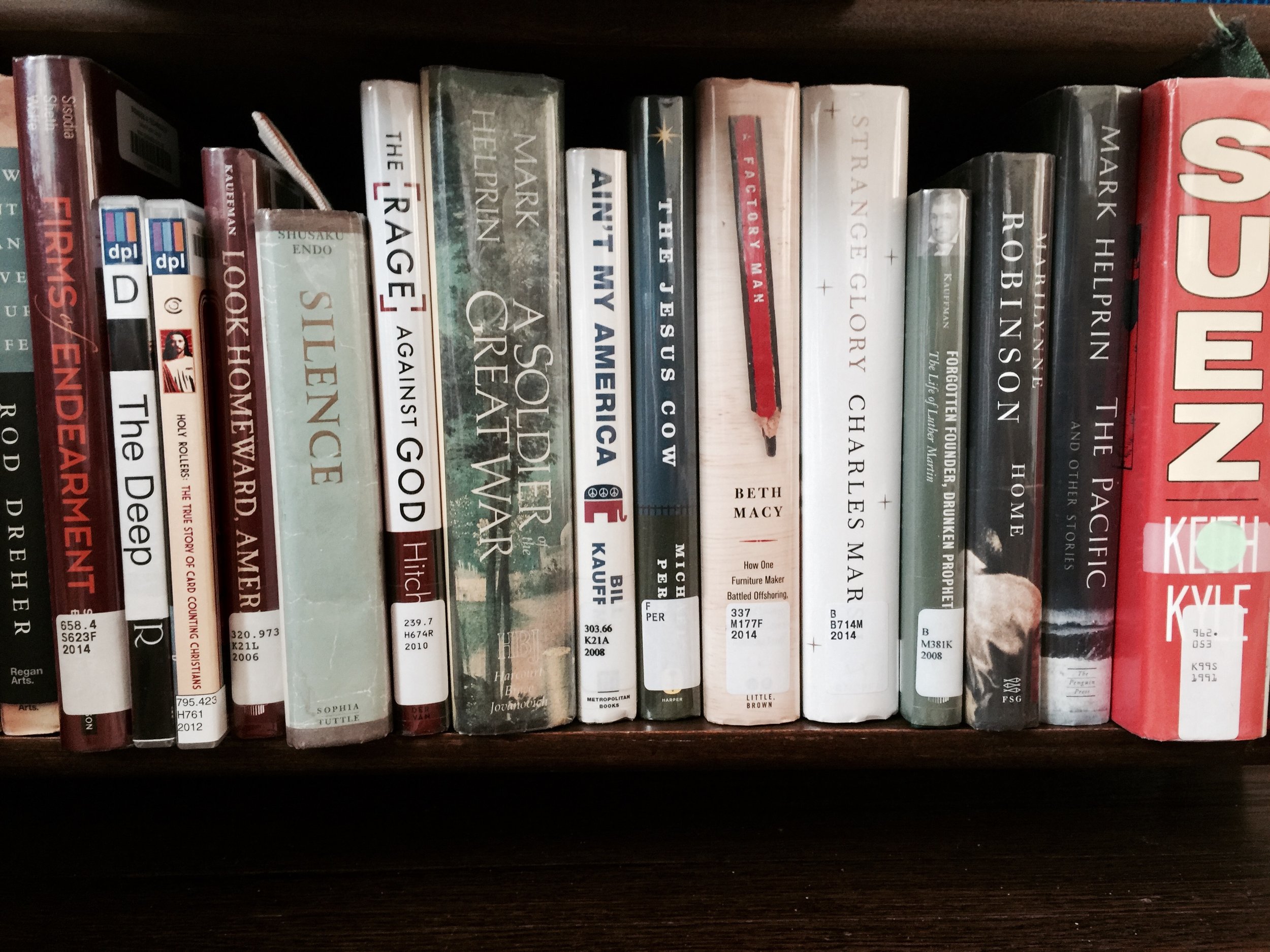 Don't be impressed--I have a habit of hearing about a book, placing it on hold at the library, and then stockpiling a bunch of great books I haven't yet and probably won't ever read.
Don't be impressed--I have a habit of hearing about a book, placing it on hold at the library, and then stockpiling a bunch of great books I haven't yet and probably won't ever read.
And Most Importantly, Real Books!
I love reading, and I love reading physical books. I have aKindle and I use the Kindle app for iPhone; I like the way I can quickly annotate an ebook. But, despite the convenience of the ebook, I still think the regular old book is a pretty great form of technology, and reading a good book can quiet my mind better than just about anything else.I read books on theology and leadership for my job, but what I really like reading are books on history and especially long novels. I try to vary up the books I read: something on one topic, and then something completely different. (As an example of something really different, I read a very long novel this summer, completely unlike anything else I've read in years:?Kristin Lavransdatter, Sigrid Undset's 1100 page masterpiece about a woman living in 14th century Norway, and one of the best books I've ever read.)
In Conclusion: I Need to Make Some Changes
As I've been thinking about my media diet these past few weeks, I've once again been confronted with the fact that I fritter away too much of my time on unimportant online content that cuts into my time and ability to read books that matter.My goal is to read 40 books this year, which would be more than I've managed in the previous 2 years. My current total: 29.Maybe I need to stop watching so much?Arrested Development.
P.S. Subscribe
If you've read this far, why don't you go ahead and subscribe to my blog? I supposedly post 3 times a week, though I've been posting less frequently recently. Click here to subscribe.
My Daily Media Diet
What are the books, podcasts, websites, blogs, and newsletters that make up your media diet? You are what you eat, and that includes the information you consume. Today's post is about what I read daily as part of my media diet (part 1 of a 3 part series).
What Is a "Media Diet?"
"Media diet" is a phrase I came across several years ago in a web series by?The Atlantic. A reporter would interview public figures about how they stayed informed and what they regularly read and watched and make a simple post out of it. (I still remember Malcolm Gladwell's comment about his daily reading habits:?"Since my brain really only works in the morning, I try to keep that time free for writing and thinking and don't read any media at all until lunchtime." I totally identify....)In part 1 of this series (parts 2 and 3 coming on the next two Mondays) about my media diet, I'll focus on what I read daily (or at least regularly).
What I Do First Thing in the Morning
I've written before about the importance of the First 15, i,e., spending?at least the first 15 minutes of your day in prayer, scripture, and silence. So, I've been getting up really early recently in order to have an unhurried time of prayer first thing, before I workout.Currently this is what I use in my prayer time:
- the NRSV Thinline Bible I was given by the bishop at my ordination;
- the scripture reading calendar my church gives out through our?Eat This Book program;
- Seedbed's Field Guide to Daily?Prayer (I really like the 30 day- reading plan for the Psalms);
- and a small journal that I write in about once a week or so.
Breakfast:?The Dallas Morning News and NPR
After working out and while eating breakfast and getting ready:
- I get the print version of?The Dallas?Morning News delivered at home, and read it every morning (except Sundays, when I don't get to it until late afternoon, if at all). I have come to really like?The DMN and get more locally-focused and sports news from it than anywhere else.
- I listen to NPR's?Morning Edition radio program most mornings.
Blogs: Rod Dreher (and Not Much Else)
I used to read Andrew Sullivan's blog almost every day. Now that he has stopped blogging, almost the only blogger I read regularly is Rod Dreher. Rod Dreher is a fascinating and unique writer: a convert to Eastern Orthodoxy living in his native rural South Louisiana who writes about culture from a social conservative point of view.One of the topics Rod Dreher writes about that I find most intriguing and persuasive is the so-called "Benedict Option": the idea that Christians in the West today may need to follow the 5th century example of St. Benedict and spend less time participating in politics and the culture wars and more time deliberately cultivating the practices that will "thicken" our faith and deepen our witness. Here is a post from Rod's blog in July that summarizes his thoughts on the Benedict Option.
Websites I Read Almost Daily
- I read?The New Yorker almost every day. I like the short form pieces from folks like John Cassidy and Amy Davidson, but I really prefer The New Yorker for its?long-form essays like this one about Northern Ireland that I wrote about in April.
- I also browse?The Atlantic's website regularly, though I believe that?The Atlantic?is a much worse magazine since it expanded its online footprint. Many of the online articles seem to be merely a slightly (sometimes?very slightly) more serious version of the kind of thing that I suppose you find on Buzzfeed or The Huffington Post, and I do not mean that as a compliment. The Atlantic these days seems to feature quick-reaction pieces on hot-button topics that lack nuance and wisdom. (I'll say more about my complaints with?The Atlantic in part 3 of this series.)
- I browse the?Yahoo! main site and scroll through the headlines, particularly about sports and politics.
- I check out the?BBC Sport's soccer page almost daily.
Online Newsletters and Other Sites
- I read movie reviews on?Plugged In every few weeks or so. I'm interested in movies, but I like reading reviews from a conservative Christian perspective (a perspective you don't get from mainstream reviewers). I rarely have time to see movies in the theater anymore, so I find myself reading many more reviews of movies than actually seeing movies.
- I've recently discovered?Book Notes,?a free newsletter from Byron Borger, owner of Hearts and Minds bookstore in central Pennsylvania. Through Book Notes, I've stumbled across books that I would never have heard of elsewhere--it's a great resources.
- I read articles and watch videos the videos on the CrossFit main site several times a week.
Coming in Parts 2 and 3....
Parts 2 and 3 will be about what I regularly listen to and watch and read in print. The above is what I read online on a regular basis. What about you? What makes up your daily media diet?
P.S. Subscribe!
If you've read this far, why don't you go ahead and subscribe to my blog? I post 3 times a week (Mondays, Wednesdays, Fridays). Click here to subscribe.
The Real Root of Our Dissatisfaction
"It's no wonder we often find ourselves looking for satisfaction in all the wrong ways. You and I are deluged from every side by advertising designed to foster dissatisfaction with our current lives. From what I've seen on television, my life would be much more satisfying if I were to eat Special K for breakfast, buy my car insurance form GEICO, and wear a Breitling watch. No one is impervious to advertising's influence....
The real root of our dissatisfaction goes deeper than our response to the blitz of media advertising. It resides somewhere deep in our souls and traces its origins all the way back to Eden. The serpent's question to Eve strikes home in all of our hearts: 'Did God really say, "You must not eat from any tree in the garden"?'Before this, Eve had delighted in God's provision, but now she wants more. She decides that the only fruit that will satisfy her hangs from the branches of the one tree God forbade her to eat from. But upon partaking of the fruit, she finds--as we all have--that living outside of God's boundaries and provision leads to fatal dissatisfaction. Once humanity crossed the threshold into a broken relationship with God, we've been dissatisfied ever since."from?Simplify: Ten Practices to Unclutter Your Soul, by Bill Hybels (pp. 256-257)
My 2014 Reading List
Soviet Russia during wartime; climbing Mount Everest in canvas puttees and hobnailed boots; Hasidic teenagers in Brooklyn: these were just a few of the subjects I read about in 2014. Sure, I didn't make my reading goal, but it was a great year for reading all the same.
My 2014 Reading Goal
I set a goal to read 50 books in 2014. My actual total: 34. (Just like last year, I fell short.) But can I get a little credit for reading several huge novels? I mentioned last year that I wanted to read more fiction and literature in 2014, and as you'll see below, I accomplished that goal. (I think I'd like to add more books on theology and pastoral ministry in 2015.)
Here Are My Rules
I only counted books that I read all the way through. In my weekly sermon prep, I often end up reading parts of different books, but they don't count. Also, I read lots of periodicals and online journals, but I don't count them toward my total. Why not? I find that the concentration required to read a book all the way through is different (and more valuable) than reading a blog post or online article. Also, reading blog posts and articles isn't life-giving to me the way reading a book is.
A book that I'll remember in the future, a book that adds enduring value to my life, that's a book I'll define as good. I use a 5 star system in my ratings to signify the following:
✭✭✭✭✭ life-changing and unforgettable
✭✭✭✭ excellent
✭✭✭ worth reading
Books getting less than 3 stars aren't on my "Best" list, which doesn't mean they were necessarily bad, but just not books that I'd excitedly recommend to you.
✭✭ read other things first
✭ not recommended
The Best Books I Read in 2014 (in chronological order)
The Abominable: A Novel, by Dan Simmons. The first book I read in 2014, and one of the best I read all year. It's a long novel (688 pages) about a team trying to climb Mount Everest in 1924, against a background of mystery and international espionage. Author Dan Simmons takes the gaps in our historical knowledge (What really happened to George Mallory and Sandy Irvine? Why didn't Hitler put Operation Sea Lion into motion and invade England in 1940?) and connects them and fills them in in creative and satisfying ways.From Booklist, via Amazon:
It‘s 1924, and a trio of rogue climbers: mysterious WWI vet Deacon, emotional Frenchman Jean-Claude, and our narrator, brash young American Jacob, are hired to find the corpse of a dignitary lost on Everest. While they’re there, they go for the legendary summit. Right away, there‘s a complication: a fourth team member, the dead man‘s cousin and a woman, no less! But it‘s the subsequent complications that make this required reading for anyone inspired or terrified by high-altitude acrobatics: sudden avalanches, hidden crevasses, murderous temperatures, mountainside betrayals, and maybe just maybe a pack of bloodthirsty yeti. Though the first 200 pages of climbing background might have readers pining for the big climb, it is nearly always interesting, and, later, Simmons excels at those small but full-throated moments of terror when, for example, a single bent screw might mean death for everyone."
The Abominable had me constantly reaching for my atlas and looking things up on Wikipedia.
Highly recommended. ⭑⭑⭑⭑
The Christ of the Indian Road, by E. Stanley Jones. I'd like to understand the culture in which I minister as well as Jones, a Methodist missionary to India 100 years ago (and a friend of Gandhi's) understood his.
Recommended. ⭑⭑⭑
Unbroken, by Laura Hillenbrand. The story of Louie Zamperini's life is one of the more remarkable I've ever read.
Highly recommended (and I also recommend the movie, by the way). ⭑⭑⭑⭑
The Last Hero, by Peter Forbath. This fictionalized retelling of Henry Morton Stanley's final trip through the Congo is terrifying and compelling. Another long novel (729 pages) that had me constantly reaching for the atlas and encyclopedia, it re-introduced me to the remarkable life of Henry Morton Stanley. Stanley was one of the most famous and lionized me in the world in the last 3rd of the 19th century, and though I'd read about him when I was a teenager, I'd forgotten how improbable, exciting, and impressive were his accomplishments. Like Louie Zamperini--although actually much more so--Stanley's life story is one of those that if you made it up, no one would believe it.
Highly recommended. ⭑⭑⭑⭑
The Chosen, by Chaim Potok. Why read fiction? Fiction enables you to experience the life of another in a way that is impossible otherwise. The Chosen is about the friendship between two boys in the Hasidic community in Brooklyn during the Second World War.
Highly recommended. ⭑⭑⭑⭑
Essentialism, by Greg McKeown. I wrote about this book here. Like most of these sorts of business and leadership books, it's too long, but still worth the read.
Recommended. ⭑⭑⭑
What Radical Husbands Do, by Regi Campbell. I'd like all the men I know to read this book.
Recommended. ⭑⭑⭑
The Advantage, by Patrick Lencioni. A great book on organizational leadership.
Recommended. ⭑⭑⭑
Jayber Crow, by Wendell Berry. The only novel of Berry's I've ever read, it's a slow accounting of the life of a small hamlet in Kentucky, and its bachelor barber.
Highly recommended. ⭑⭑⭑
The Best Book I Read in 2014
German soldiers at Stalingrad, January 1943.
Soviet attack, February 1943.
Life and Fate, by Vasily Grossman (translated by Robert Chandler). A novel by a Red Army journalist who lived through the Battle of Stalingrad, Life and Fate is a masterpiece and an experience that I will never ever forget. I first heard about Life and Fate as a college history student, and have had it on my someday/maybe list for 15 years or so. It's a massive novel (896 pages), and was the last book I read in 2014. Here's a good summary from Publisher's Weekly:
Obviously modeled on War and Peace, this sweeping account of the siege of Stalingrad aims to give as panoramic a view of Soviet society during World War II as Tolstoy did of Russian life in the epoch of the Napoleonic Wars. Completed in 1960 and then confiscated by the KGB, it remained unpublished at the author's death in 1964; it was smuggled into the West in 1980. Grossman offers a bitter, compelling vision of a totalitarian regime where the spirit of freedom that arose among those under fire was feared by the state at least as much as were the Nazis. His huge cast of characters includes an old Bolshevik now under arrest, a physicist pressured to make his scientific discoveries conform to "socialist reality" and a Jewish doctor en route to the gas chambers in occupied Russia. Ironically, just as Stalingrad is liberated from the Germans, many of the characters find themselves bound in new slavery to the Soviet government. Yet Grossman suggests that the spirit of freedom can never be completely crushed. His lengthy, absorbing novel--which rejected the compromises of a lifetime and earned its author denunciation and disgrace--testifies eloquently to that spirit."
Highly, highly recommended. (I'll need to write more about this separately.) ⭑⭑⭑⭑⭑
The Rest of 2014 (in chronological order)
Some of the books below are quite good, but for whatever reason, they didn't grab me in such as way to make my "best of" list above. Still, some of these books might be worth your time. Others most definitely aren't. Caveat lector.
That Used to be Us: How America Fell Behind in the World It Invented And How We Can Come Back, by Thomas Friedman & Michael Mandelbaum. The title pretty much says it all.... ✭✭
Stanley: the Impossible Life of Africa's Greatest Explorer," by Tim Jeal. After reading?The Last Hero (see above), I wanted to learn more about Stanley. ⭑⭑
The Little Way of Ruthie Leming, by Rod Dreher. A memoir about returning home after the death of an only sibling. I first read about the book on Dreher's blog, which is one of my favorites. A nice book about the importance of family and community. ⭑⭑
Death by Meeting, by Patrick Lencioni. Helpful. ⭑⭑
Finally Free: Fighting for Purity with the Power of Grace, by Heath Lambert. A book about men and pornography. ⭑⭑
FoundationFoundation and EmpireSecond Foundation, all by Isaac Asimov. I'd heard that these were ground-breaking books in science fiction, so I think I was expecting more. Good, but not great. ⭑⭑
The Tale of Three Kings, by Gene Edwards. A lot of evangelical pastor types love this book about Saul, David, and Absolom. Not totally sure why. ⭑⭑
The Anglican Evangelical Doctrine of Infant Baptism, by John Stott & J. Alec Motyer. Not helpful to me. ⭑
The 21 Irrefutable Laws of Leadership, by John Maxwell. I don't get much out of Maxwell's stuff. ⭑
All In, by Mark Batterson. ⭑
Developing the Leader Within You, by John Maxwell. Maxwell's first book, and definitely one of the worst books I've ever read. More clich‘s than a box of chocolates. ⭑
The 17 Indisputable Laws of Teamwork, by John Maxwell. ⭑
Podcast Launch, by John Lee Dumas. ⭑
Come Home: A Call Back to Faith, by James MacDonald. My mom told me about this book, and as soon as I heard the title, I thought, "I want to do a sermon series on that theme." I ended up doing the series--one of my favorites we've ever done--but I didn't find the book very helpful to me, and all I ended up using was the title (which is a great title, by the way). ⭑
An Approach to Extended Memorization of Scripture, by Andrew Davis. Can't beat the price. ⭑⭑
Eat This Book, by Eugene Peterson. Like?Come Home mentioned above, I got a sermon series out of this title (which I'd heard elsewhere), but didn't get much content for the actual series from the book. ⭑⭑
7 Men and The Secret of Their Greatness, by Eric Metaxas. I want to like Eric Metaxas's books because I believe in what he's trying to do and agree with his general worldview, but as with his Bonhoeffer book, I found the writing in this book to be really annoying and juvenile. Unfortunately, I just don't think Metaxas is a very good writer. Not recommended. ⭑
Platform: Get Noticed in a Noisy World, by Michael Hyatt. Good practical stuff for bloggers. ⭑⭑
In the Name of Jesus: Reflections on Christian Leadership, by Henri Nouwen. I love the epilogue about Nouwen and his friend with special needs, speaking at a conference together. Beautiful. ⭑⭑
Zero to One: Notes on Startups, or How to?Build the Future, by Peter Thiel. I really disliked this book; this Vox post is a good summary of my own feelings. (For another funny article on Silicon Valley arrogance and foolishness, see this New York magazine piece?about the men behind the laundry app "Washio.") Not recommended. ⭑
Not Yet Christmas, by J.D. Walt. Some nice reflections on Advent. ⭑⭑
Into the Silent Land: a Guide to the Christian Practice of Contemplation, by Martin Laird. A reference on Rod Dreher's blog pointed me towards this book. Good stuff on contemplative prayer. ⭑⭑
I'd love to hear your thoughts on any of the above. Anything I need to be sure and read in 2015?
P.S. Subscribe!
If you've read this far, you're committed, so why not subscribe to future updates from my blog? Click here to subscribe.


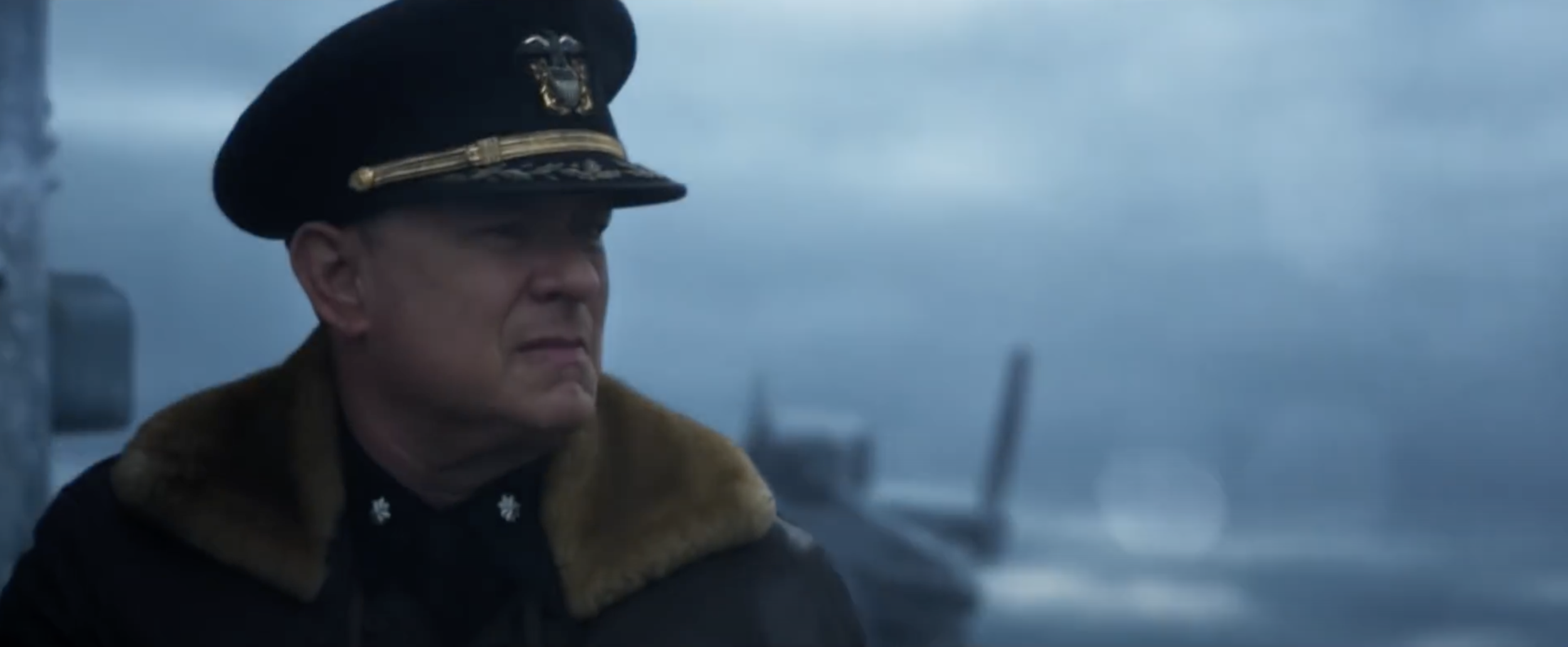
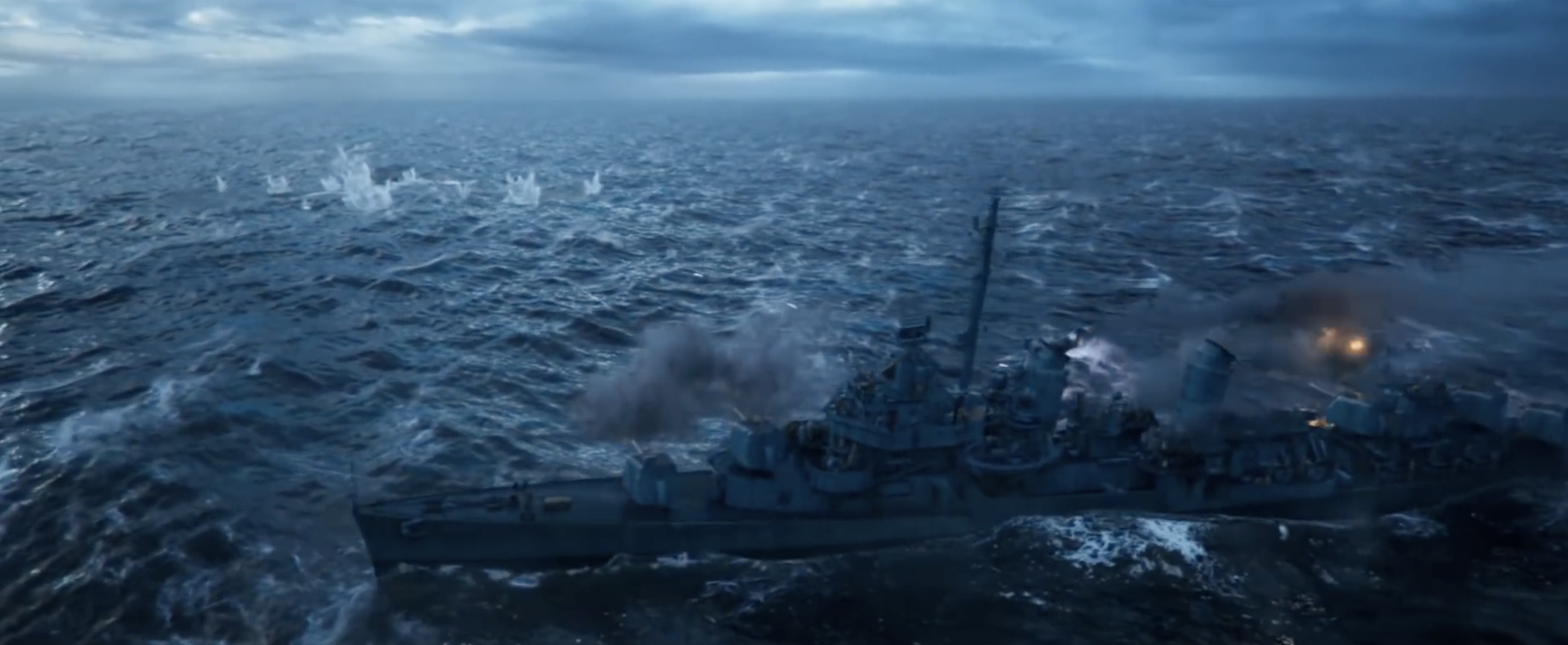
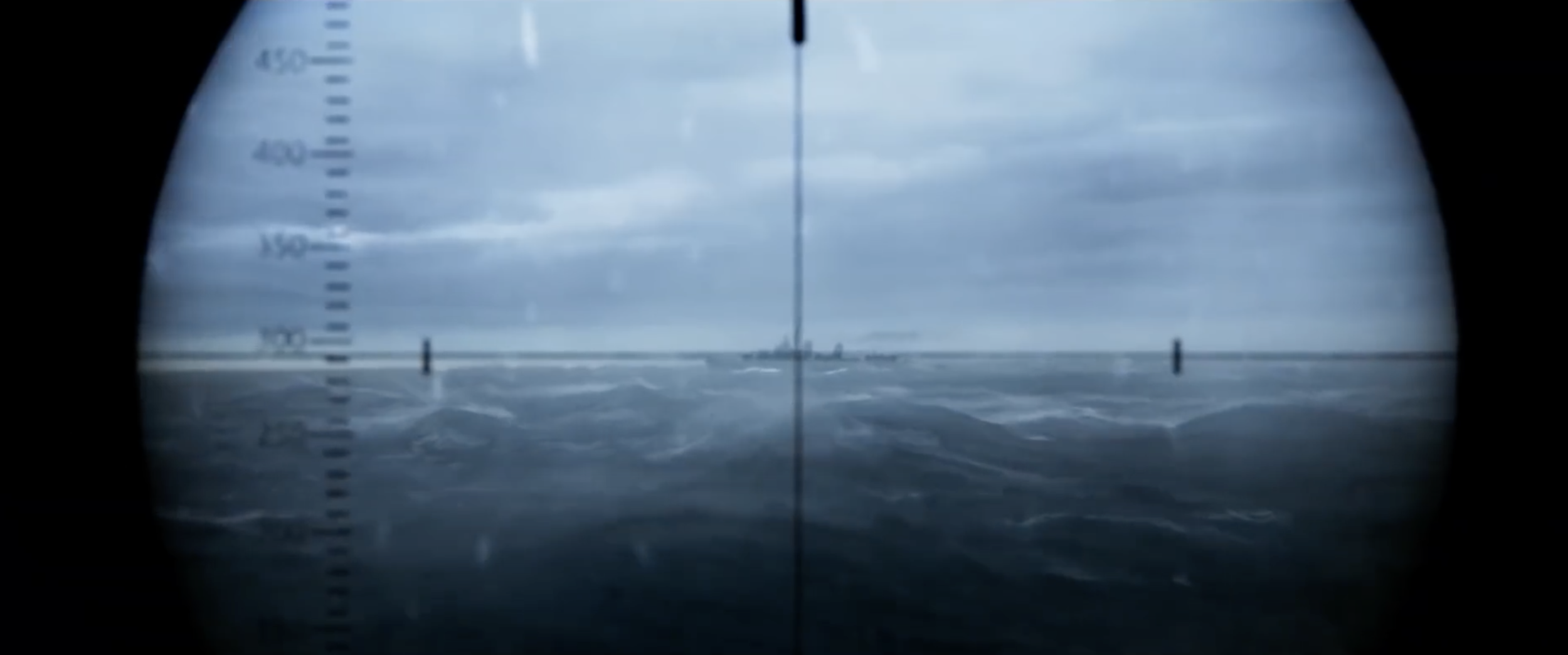
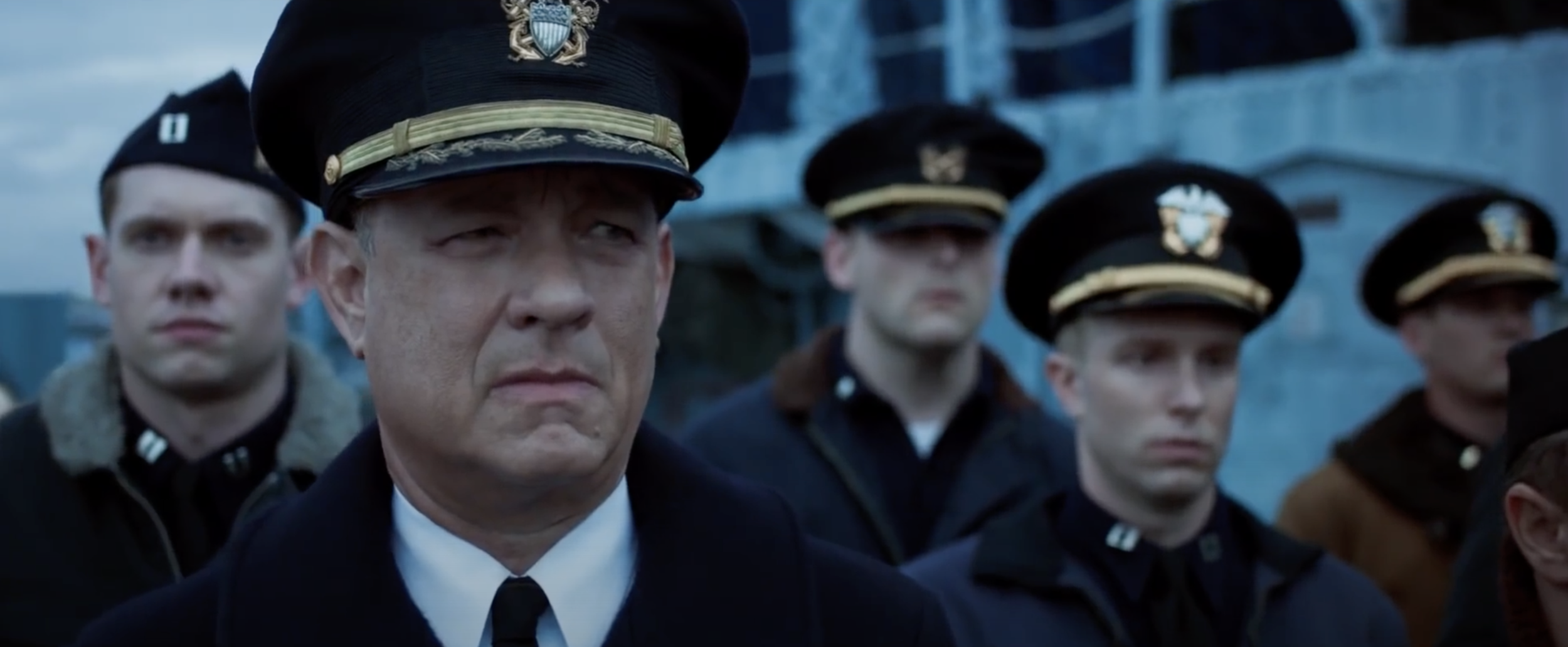











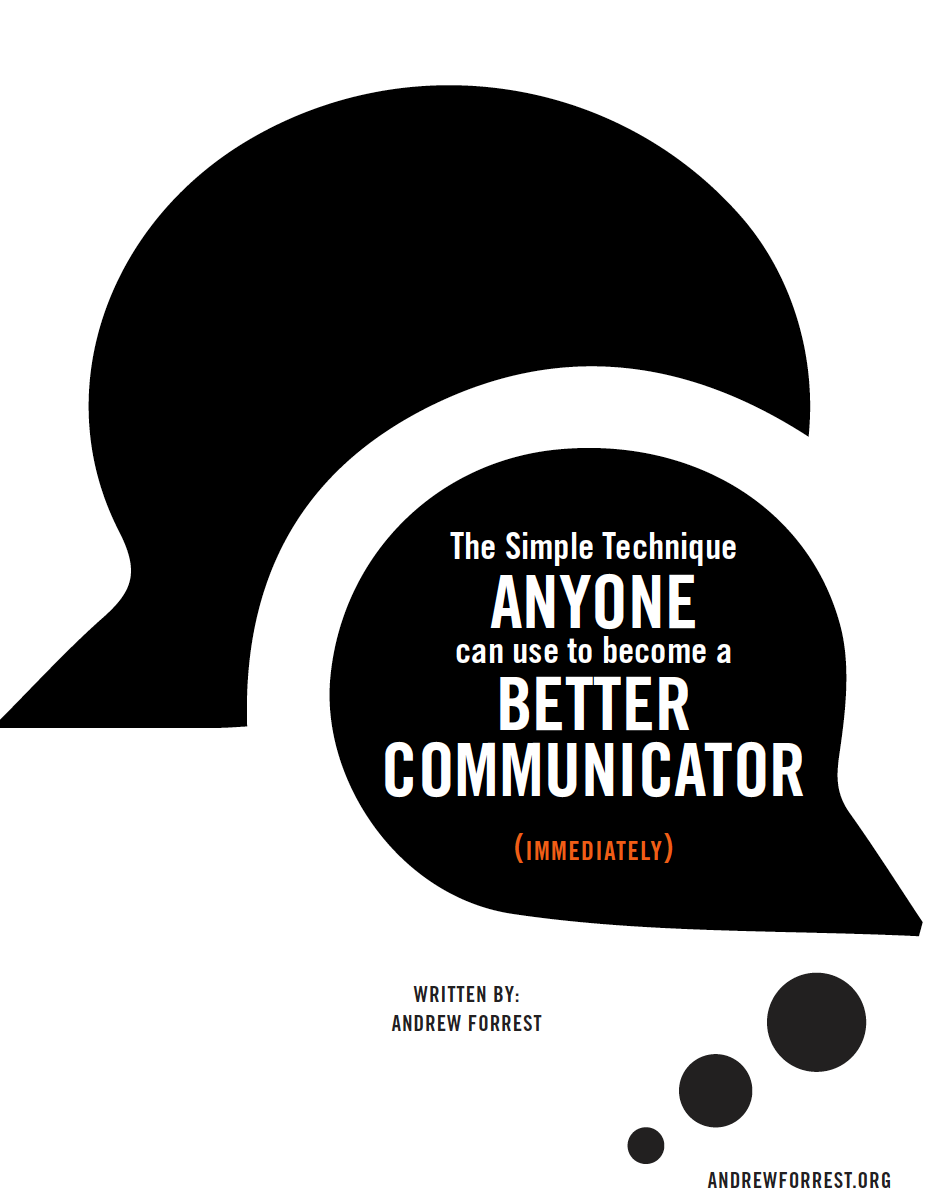











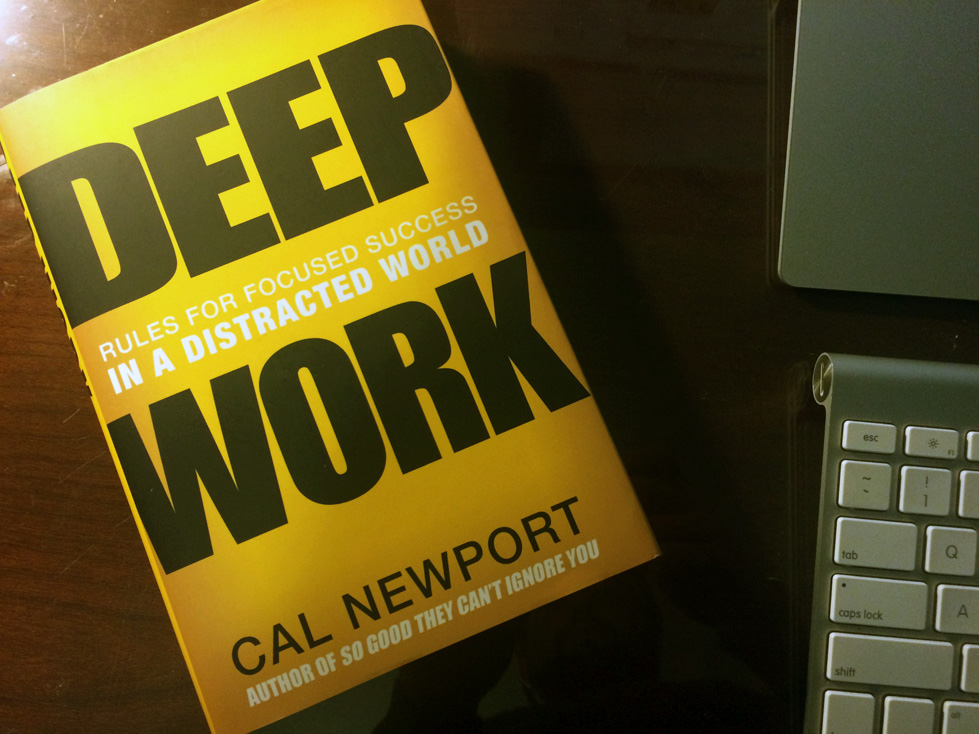













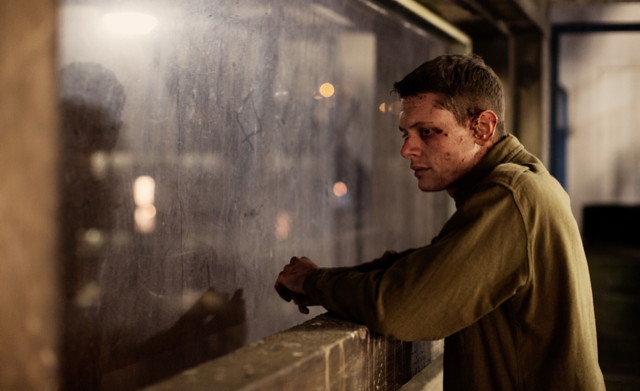

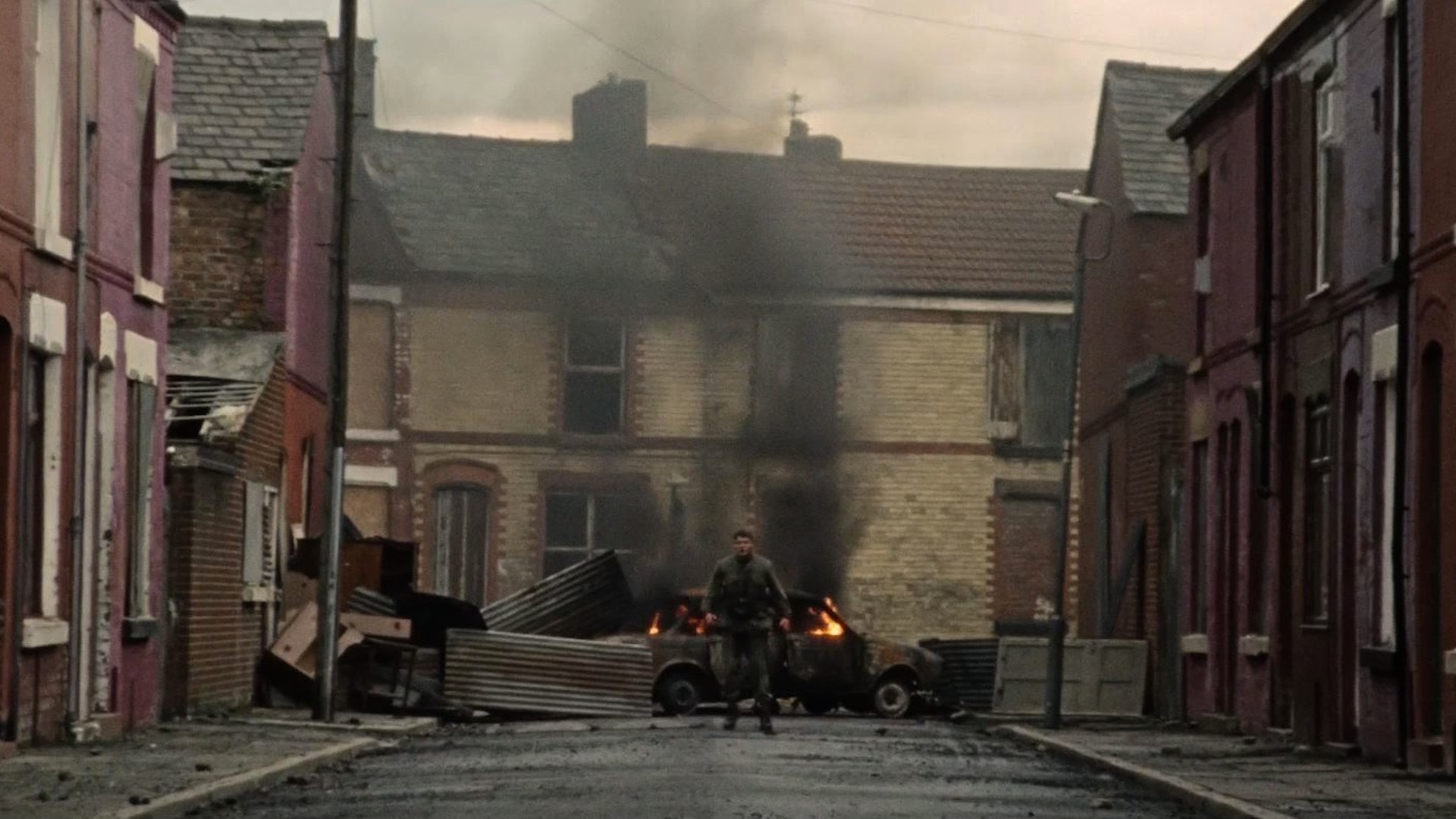

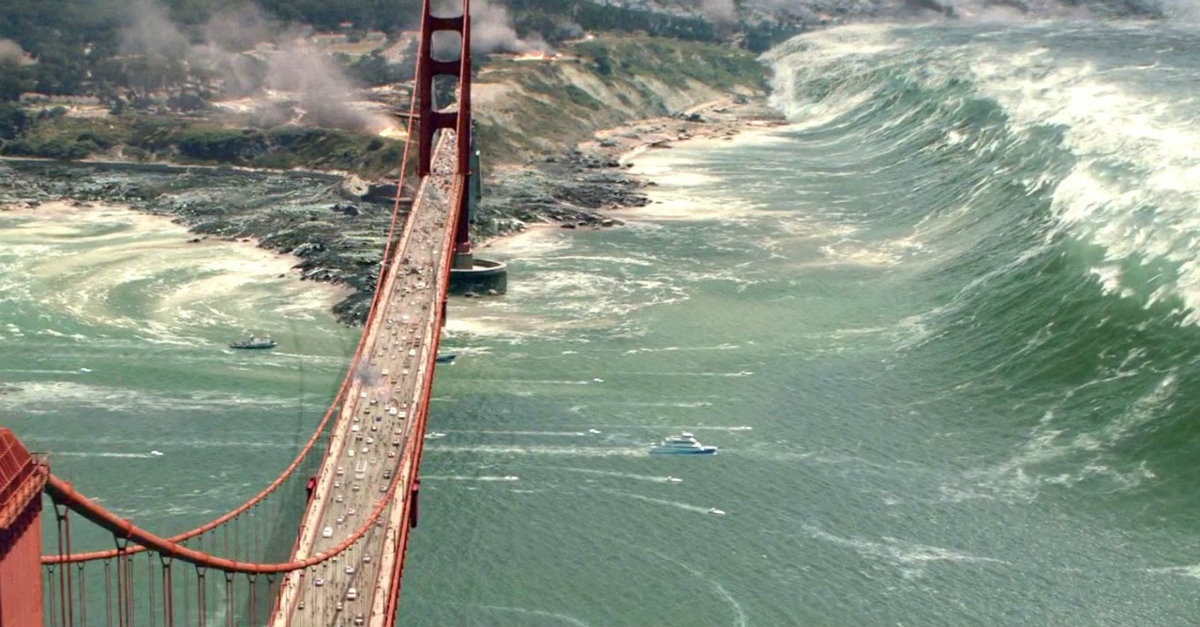
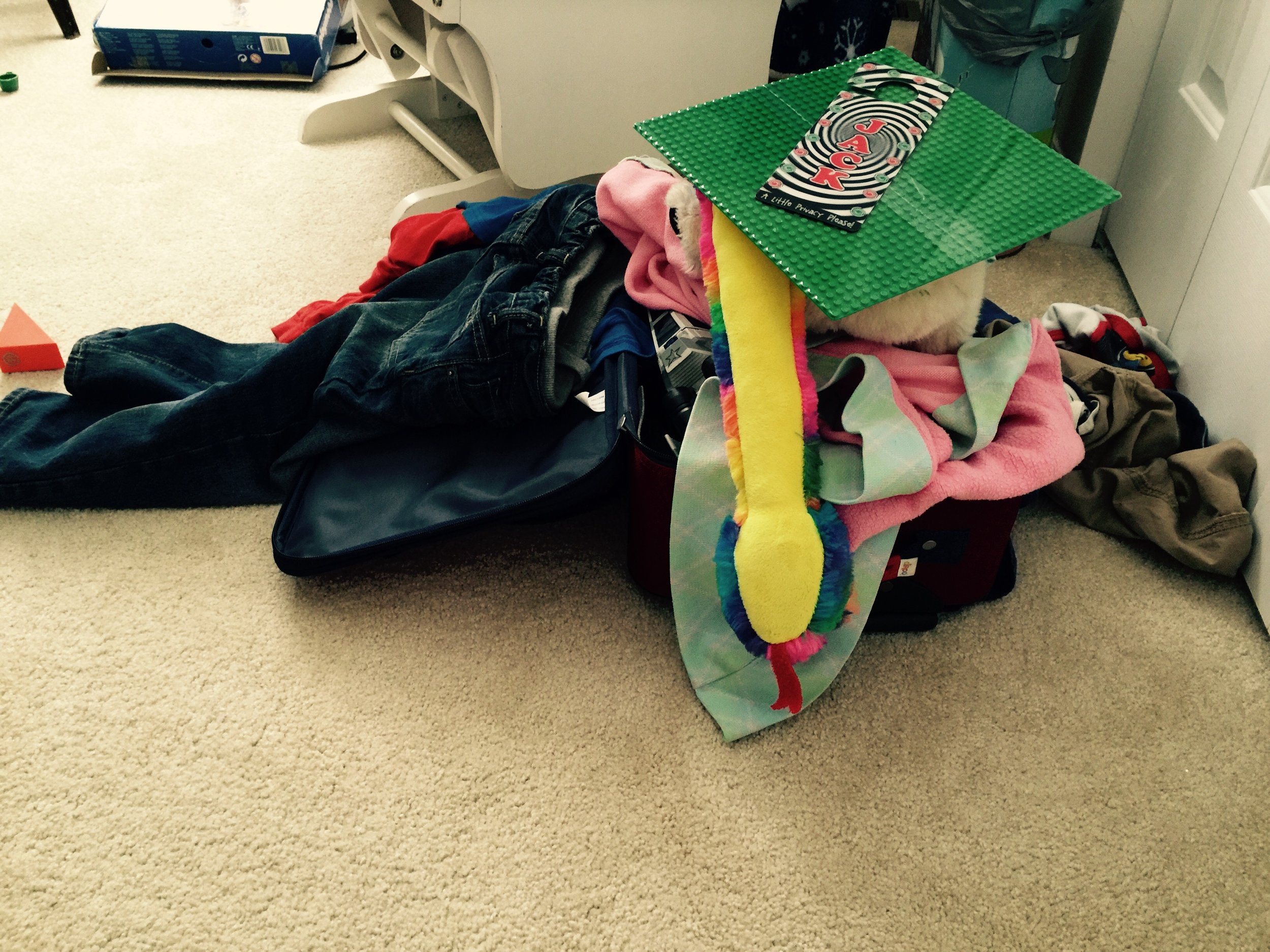
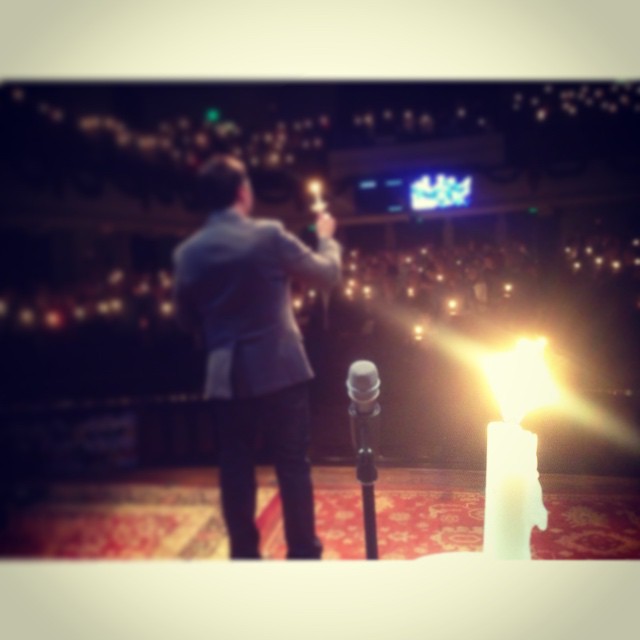
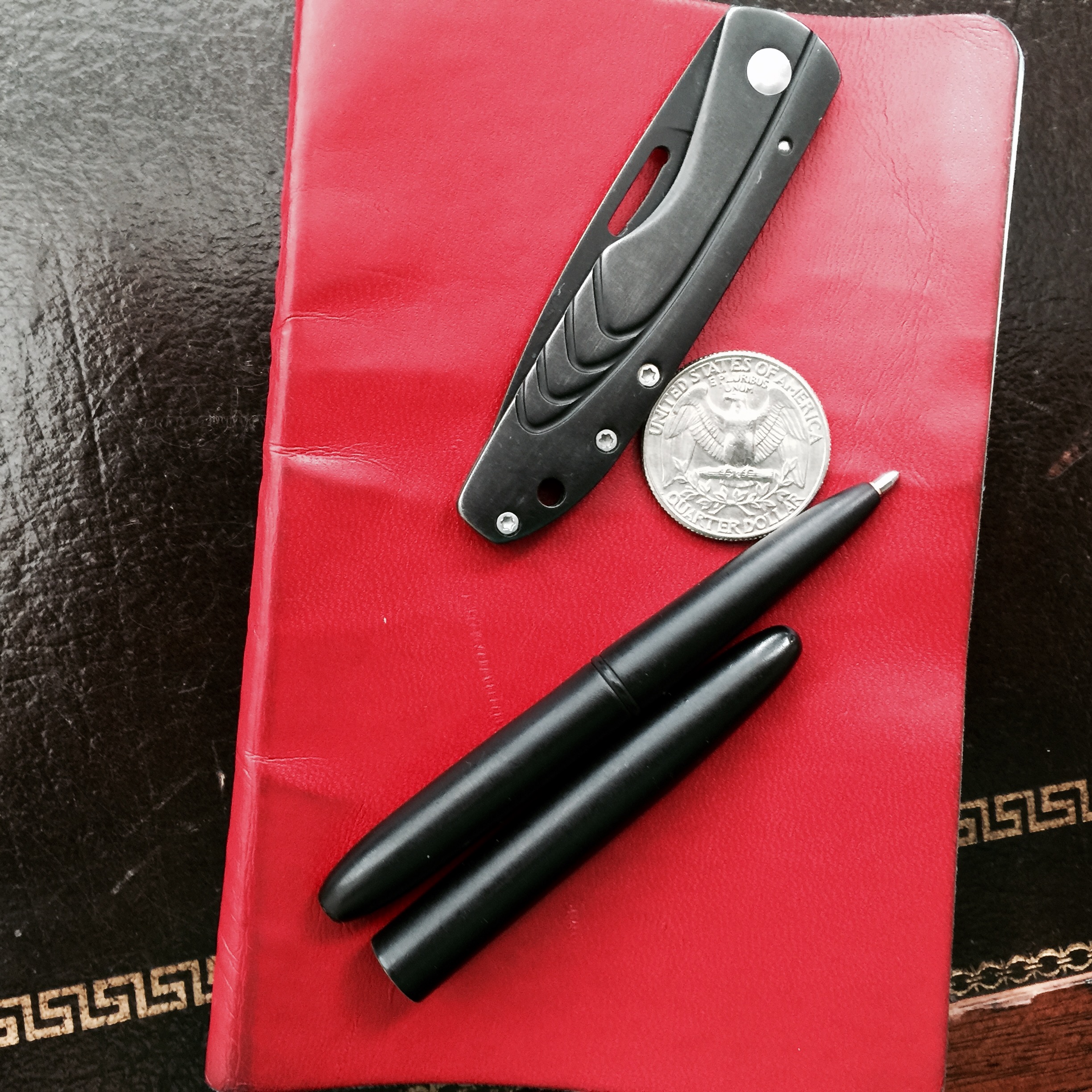









![[Léon Cogniet - The Artist in His Room at the Villa Medici, Rome]](https://images.squarespace-cdn.com/content/v1/5d70f59aefca59000162e4e6/1572533387527-8I1K1K6FG9WKM87BOXOV/lossy-page1-842px-L%C3%A9on_Cogniet_-_The_Artist_in_His_Room_at_the_Villa_Medici%2C_Rome_-_1978.51_-_Cleveland_Museum_of_Art.tiff.jpg)

